#or does the joker movies with joaquin phoenix take place in the same world as scottish batman?
Explore tagged Tumblr posts
Text
wait i've been thinking abt this and want your opinion
#curious to see what ppl think#personally i like to think that scottish batman is another character considering how hes called scottish batman and not just batman#like theres batman#and then theres scottish batman#this wakes questions like is there a scottish joker#or does the joker movies with joaquin phoenix take place in the same world as scottish batman?#im gonna go to sleep#sfth#shoot from the hip#shoot impro#sfthposting#sfth sam#the midnight mystery#shoot from the hip improv#improv#improv comedy
12 notes
·
View notes
Text
So probably the best way to start this is to mention the obvious and say that Joker (2019) has pretty much all of nothing to do with...The Joker. I had mention to someone else a week or two back, but for as much as The Joker can work in a wide variety of stories, the character is inherently limited, my go-to phrase being “one dimensional.��� The Joker’s ongoing motivation is that he wants to defeat Batman, nothing more, nothing less. “Killing Batman” is only a single part of it, “it” being proving that Batman is fallible and has some weakness. There are characters like The Riddler that zero in on a single aspect of that such as, surely there are some problems that can be created that even The World’s Greatest Detective cannot solve, but The Joker is a convenient character in that he can be applied to any aspect of Batman’s character, which is why you get stories like Batman and The Joker getting into a surfing contest, because it all goes back to that theme of if there’s something that Batman is not the best at, Batman is ultimately doomed to fail (with regards to suspension of disbelief that is needed for superheroes to work, both creators and the audience have to commit to the concept that superheroes existing 100% makes the world around them a better place, and a major incoming failure on Batman’s part makes for greatest suspense in that it threatens that concept.)
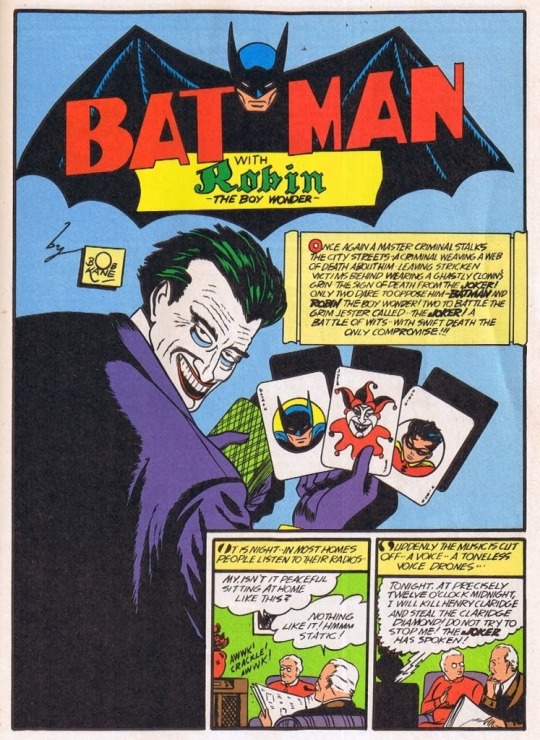
But then, there lies the issue. Joker does not actually have any driving motivation for WHY he wants to defeat Batman, he simply is. It’s my theory on why no origin story has ever permanently stuck, because you can’t ever really make sense of that. This compounds itself into Batman and Joker’s relationship and can never really evolve, it’ll play out in the same way every time just with new set dressing. What you can do is raise the stakes, but with the back to back publishing of “The Killing Joke” and “A Death in The Family” in 1988, raising the stakes meant making The Joker a sadistic serial killer at the cost of everything else about the character, creating a Joker where everyone questions why he deserves to be alive to appear in another comic three to six months down the pipeline. There have been some instances of trying to make The Joker more nuanced, like Grant Morrison introducing the concept of “super sanity” in their Batman work and addressing how The Joker reinvents his personality on the fly, but it’s ultimately set dressing that doesn’t alter anything.
So, that begs the question of why Joker, the film, calls itself “Joker” in the first place or why it takes place in Gotham instead of New York and blah blah blah the short answer is if they didn’t, Warner Bros wouldn’t have been able to rake in a billion dollars. It’s on par with Sony deciding to make Venom (2018) and never addressing why Venom has those large white eye covers if his design isn’t based on Spider-Man, I’ll give Joker (2019) the compliment that it’s more interesting than that film at least. I really did not want to bring up all this Batman shit while watching this but then they started addressing Thomas Wayne and I began mentally groaning. I don’t want to dive into the concept of how or if the Batman mythos is impacted if you make Thomas (and Martha Wayne, who like in most Batman stories is more of a cameo than an actual character here) a shitty person, but then again I wouldn’t have to bring that up if the film didn’t cram it in in the first place. I am...SO...SO THANKFUL I did not see any memes or theories or head canons surrounding “B-B_BUH JOCKER IS BEETMANS HALF BROTHER?????/???” which...whatever. Come to think I didn't see anyone bitch that he doesnt become The Joker until 90 minutes in either. I think the majority of my goodwill (what turned it from, oh you know the good outweighs the bad enough for me to be able to tell someone this is watchable, to, oh you can skip this) was destroyed at the Waynes getting shot scene with, WHOOPS, The Joker was responsible (indirectly!) That gave me BAD Batman (1989) flashbacks, and when you remind me of Batman (1989), you kind of do get on my bad side. Fuck that movie.
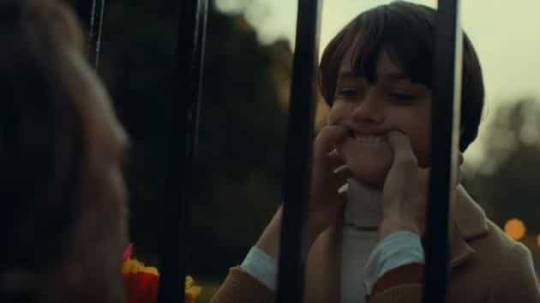
SO. In the midst of ALLL of this. Let’s talk about the “““real source material”““ for Joker (2019): Taxi Driver (1976) and The King of Comedy (1982).
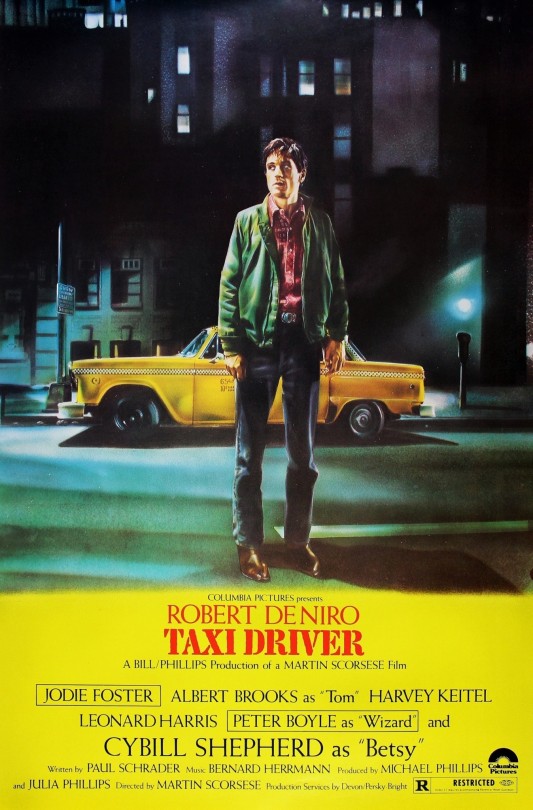
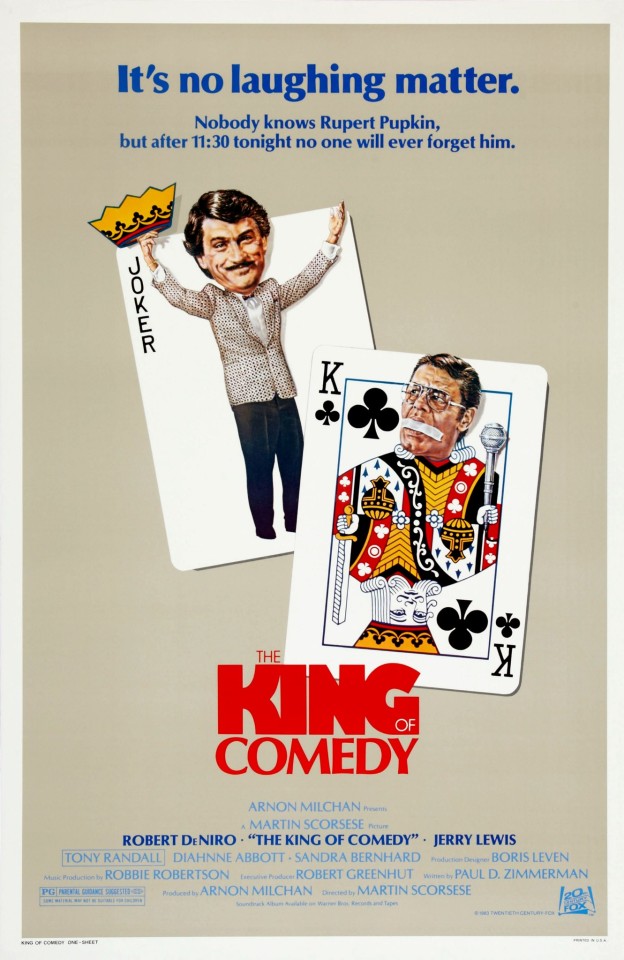
I don’t think I’m ruffling any feathers by saying that that is the case and that both of those films are wayyy better than Joker (2019). I mean, there’s a reason why Robert De Niro was not only cast in this film, but he’s second billed right under Joaquin Phoenix. Those are two fairly different films but they’re, at their core, stories of men who are ticking time bombs of violence ready for someone to light the fuse. It’s another point against Joker (2019), not only for reminding me of much better films, but forcing me to ask why another pastiche of this story needed to be told. Martin Scorsese kind of made his career with a monopoly on men losing their shit and everyone around them being caught in the tornado. Joker (2019) admittedly plays the material much differently, in that all the way through we are supposed to sympathize with Arthur Fleck and stand alongside him every step of this of his downward spiral, and even with where he ends up, I’ll admit I don’t have an issue with that, but the film struggles with making me care half the time. Like, yes, when Arthur is alone at home trying not to go awol, yeah, I get that, but at other times there’s stuff like how Arthur’s relationship with Sophie is never developed in any meaningful capacity, like why is enamored with him, why is she not as disturbed by him as most other people seem to be? When we discover she’s not real, that explains it from a logical perspective I guess, but it isn’t a shock or a gut punch.
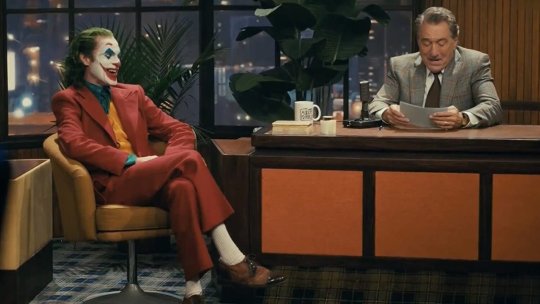
Can I be real for a second? There are a lot of moments in this film where it made me embarrased as a neurodivergent person. The number of people who definitely saw this, because, once again, it made a billion dollars, and came away thinking oh so that’s what mentally ill people are like, even if they’re sympathetic about it, it makes me sigh.
Even though the crux of this film is Arthur’s descent, it desperately wants to be important. I know I’m not the first person to make this observation, but it does read like, oh, what’s popular now? Incels? Better make part of Arthur’s character arc that he can’t hit up any actual real women so he has to entertain himself with fantasies. Antifa? Better make it so Arthur accidentally inspires a movement of nebulous anti-rich people who all wear masks. And so on and so on with no actual commentary while simultaneously it’s not really world-building either because it’s so front and center to the plot. I gotta say, if the film is about people in general not putting up with things anymore after being shat on nonstop, why oh why is there a joke aimed at a little person pretty early on, even through some meta lense where “oh the person telling the joke is an asshat who dies later so it’s cool”?
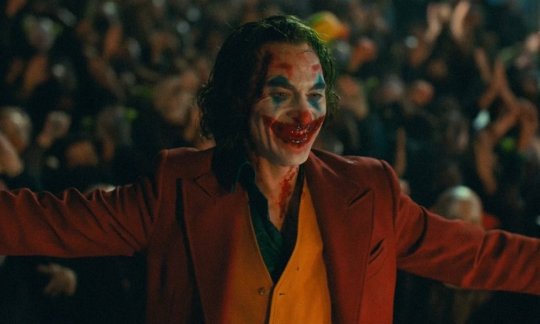
Now I’m not sure what to say next about the film itself so I guess now would be a good time to discuss the film’s ~impact~ as it were. If it weren’t for Parasite (2019) I’d have no problem saying this was the biggest film of 2019 in the grand scheme of things, like EVERYONE came in with every possible perspective on this thing long before it came out. I remember how back in like, late-2017/early-2018? A bunch of people were shitting on the announcement of this film and Warner Bros had to do damage control by releasing some on-set photos of the second subway scene two days later. It’s surreal more than anything actually watching this film now and seeing, wait, this is what everyone was memeing about nonstop? This is a mainstream film? With the directions it goes in? With the topics it brings up? Well I’ll be damned. This is probably the first time since Les Miserables (2013) and Man of Steel (2013) where a movie comes out and no two people have the exact same opinion on it, so I’m curious as to how Joker is going to age in like, a decade. So fucking weird that this is called a “superhero film” in retrospect just because it shares a name with a comic book character owned by the same company that developed and distributed this.
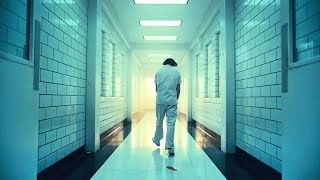
I wouldn’t be talking about this film if it wasn’t called “Joker” but then again hey nobody else would either. I don’t hate this film despite how I’ve said nothing positive about and I was pretty prepared to call it “barely good” before the finale, so I don’t regret watching it, I don’t know what the fuck to say anymore. Gang Weed memes are pretty funny if you haven’t actually seen any in the wild. 1940: “Let’s throw him into chemicals.” 2019: “Let’s throw him into society.”
8 notes
·
View notes
Text
Cruella: Does Every Villain Need a Sympathetic Origin Story?
https://ift.tt/eA8V8J
Clearly this isn’t your parents’ Cruella De Vil. This isn’t even your Cruella De Vil. However, there is something fiendishly charming about seeing Emma Stone charge into a ballroom and light her black and white dress on fire, revealing a chic red number beneath that would do Scarlett O’Hara proud. If fashion is a statement, Cruella is here to say the villain has just arrived!
Yet one can’t help but shake the certainty that by the time we actually learn the plot of Disney’s Cruella reimagining, Cruella will be in anything but black and white, or fiery red. Rather Cruella is obviously posturing to take a sideways approach to an old classic. But then again, that increasingly feels like the only direction these Hollywood redos know: the sympathetic origin story for an iconic villain.
To be clear, we’ve only gotten a glimpse of Stone as the new Cruella, and she looks absolutely fabulous in a black leather coat and cane, purring, “I’m only getting started, darling.” There’s a wildness about this interpretation befitting our current era where Harley Quinn is the hero of her own story, and Wade Wilson now leads a Disney franchise. Nevertheless, when I watch Cruella on the edge of tears in the trailer, barking defiantly that she is CRUELLA—and seemingly embracing an unfair reputation that other characters may be placing on her—a nagging question persists in the back of my head: Do we really need a sympathetic Cruella De Vil?
The trend of supervillains getting intellectual property-expanding sob stories is nothing new, be it at Disney or anywhere else in Hollywood. Maybe 25 years ago when folks liked their villains big and outlandish—think Glenn Close in Disney’s previous live-action remake of 101 Dalmatians—it was novel to see the antagonist become a tragic protagonist. But like everything else with modern blockbusters, that all changed a long, long time ago with something called Star Wars.
Back in 1977 when the original Star Wars movie was released, many audience members left the theater giddy about the world George Lucas created. In a galaxy far, far away, every pop fantasy of the mid-20th century—Wizards! Knights! Princesses! Samurai! World War II ace pilots!—was thrown into a massive cauldron that seamlessly blended these elements.
Luke Skywalker’s galaxy felt like a real place of exotic, lived-in locales, all of which captured that dirt-under-the-fingertips, tactile quality so rarely seen in fantasy stories. Sure the characters might be archetypes, but they came with histories which gave their fantasy space battles human density. Old Ben Kenobi fought in the Clone Wars with Luke’s father Anakin, who was “a gifted pilot.” But what exactly was a clone war? And why was there more than one of them? Also, what did a Jedi’s “more civilized age” look like for Luke’s papa?
For more than 20 years, no one knew the answer to those questions, which made them all the more intriguing, and the “lore” of this fantasy evermore mythic. Then came Star Wars: Episode I – The Phantom Menace, the first modern blockbuster prequel devoted to filling in the gaps left by a beloved classic’s mysteries. That movie’s problems are numerous, but at its core the most persistent, lingering issue may still be the reveal that Darth Vader was once a blonde haired little boy with the emotional range of Beaver Cleaver. Of course everyone knew in the abstract sense Vader was once a child… but did they ever really want to see it?
Additionally, did anyone really want to learn Anakin Skywalker’s reason for turning to the Dark Side is because of a bratty streak that followed him into adulthood? Probably not.
Nonetheless, all three Star Wars prequels made massive amounts of money and rather than becoming cautionary tales of what happens when you attempt to explain away all the mysteries of a beloved character, they were the first steps toward a modern staple of media regurgitation where seemingly every mug, pug, and thug would get their own sympathetic redo.
Since then, we’ve learned on screen that Spider-Man’s arch-nemesis Venom, is really a well-intentioned bloke caught in a bad romance (with his alien space buddy), Batman’s arch-nemesis the Joker is really just a Travis Bickle clone with mommy issues, and Maleficent, the reigning empress of badassery in the Disney Villain canon, was really just a woman scorned by Sleeping Beauty’s toxic father. Even Hannibal Lecter became a victim in Hannibal Rising, and the Wicked Witch of the West starred in the most popular Broadway musical of all time… where it turns out she was the hero in a conspiracy with the Scarecrow to pull one over on Dorothy.
To be clear, some of these spinoffs and reimaginings work quite well. Even if I personally am a bit chagrined at Todd Phillips’ Joker being nominated for Best Picture, Joaquin Phoenix’s sad sack killer clown created the space for a riveting performance that reminded mainstream audiences that movies can still be for adults. In another comic book movie, Magneto’s heartbreaking backstory in the Holocaust was expanded in 2011’s X-Men: First Class, which made an already relatively complex supervillain just that much more compelling in Michael Fassbender’s hands.
Overall, however, this approach has left something to be desired. And to get back to Cruella, her remix as a misunderstood tragic heroine appears to owe most of all to Maleficent. In 2014, Disney made a killing when they cast movie star Angelina Jolie as their very best big bad, a character so evil in 1959’s Sleeping Beauty that she was willing to knockoff a princess simply because no one sent her a party invite. That’s cold. And it’s wickedly entertaining. Hence why Maleficent scared and captivated generations of children.
Some characters are just too good at being bad.
The marketing of Maleficent leaned into this with a melancholic cover of Sleeping Beauty’s Tchaikovsky-inspired theme song, “Once Upon a Dream.” Now in a minor key, the new version sung by Lana Del Rey promised a scarier, more menacing version of the story, which was then confirmed by Jolie’s wonderfully devilish laugh. The big bad was finally going to have her day at the ball.
But when the movie actually came out, we learned that Maleficent was an enchanted fairy who’d been wronged. In the end, she didn’t hate Elle Fanning’s Princess Aurora. In fact, she loved the little royal and tried to save her from the curse she herself cast in a fit of justified anger. Ultimately, the sorceress adopts Aurora as the daughter she never had after disposing of her now abusive father. That’s certainly an interpretation. I guess.
It also proved massively successful in the short term, opening at a staggering $175.5 million in its opening weekend worldwide, and grossing $758 million total. Those numbers also exclude merchandising and home video revenues. If you want to know why we’re getting the punk rock Cruella, look no further.
However, did a lot of folks really like Maleficent? It made all the money in the world based on that devious marketing campaign that promised a shocking tell-all about Disney’s closest approximation to Lucifer, but by the time a sequel limped into theater five years later, relatively few seemed to still care about the misunderstood, freedom fighting warrior fairy Jolie played. Maleficent: Mistress of Evil ostensibly continued the good fight but flopped at the box office with a cume of $491.7 million, barely more than half of what its predecessor made. (Don’t cry for Disney though, as Avengers: Endgame, Star Wars: The Rise of Skywalker, and remakes of Aladdin and The Lion King in the same year made Maleficent 2 look like a clerical error.)
What this whole sputtering franchise reminds us though is that some characters are better left bad, and the mystique of the unknown is an end unto itself. While I enjoyed Phoenix’s take on the Joker, there is little argument the character was even scarier with a PG-13 rating when he manifested out of thin air, like Beelzebub, in The Dark Knight. Or to take a step away from just villains, was Han Solo really any cooler when you learned how he got his name in Solo: A Star Wars Story? Or could you have gone your whole life without knowing thanks to The Hobbit movies that Gandalf and Galadriel were kind of, sort of, just maybe friends with benefits?
The allure of Cruella De Vil is right there in her name: She’s a cruel devil. How could she not be when her entire ambition in Disney’s classic 101 Dalmatians is to skin puppies for their fur coats? Finding out she used to fight the power before hoarding it may make a lot of money, but it doesn’t make her necessarily more compelling.
cnx.cmd.push(function() { cnx({ playerId: "106e33c0-3911-473c-b599-b1426db57530", }).render("0270c398a82f44f49c23c16122516796"); });
The post Cruella: Does Every Villain Need a Sympathetic Origin Story? appeared first on Den of Geek.
from Den of Geek https://ift.tt/3dpItie
7 notes
·
View notes
Text
Joker - Quill’s Quickies (No Spoilers)
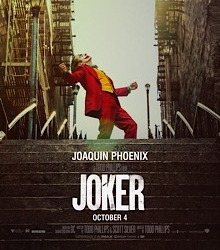
Joker is proving to be an extremely divisive film. Some think it’s the best thing since The Dark Knight. Proof that comic book movies can be art too. Others think it’s pretentious Oscar bait with nothing interesting to say.
And that’s not to mention the controversy surrounding the film as people wonder whether this will incite violence in white men (which I’m not going to touch with a barge pole, at least not here. I’ll do a separate Scribble for that sheer nonsense at some point). Needless to say everyone and their mums have an opinion on Joker... so I guess one more, won’t hurt.
Whether you like Joker or not I think depends on your tolerance for a) films that deliberately set out to make you feel uncomfortable and b) films that ask you to feel pity for the devil. (and I want you to remember that word ‘pity.’ It’ll be important later on). Personally, I loved Joker. I think it’s one of the most unique and groundbreaking comic book films I’ve ever seen. If you don’t like it, that’s fine. I can actually understand why to a certain extent. However don’t try to spin this as some ideological thing because that’s just disingenuous and stupid.
Lets start with the obvious. Joaquin Phoenix. Give this guy a fucking Oscar, for the love of God! His performance was truly mesmerising, particularly when he does finally don the full clown makeup. He is the Joker. The mannerisms, the attitude, the nihilism, it all just works. There’s even a monologue near the end of the film that could have been lifted straight out of the comics. This is a film that not only depicts the Joker perfectly, but also completely understands the character too.
The rest of the cast is exceptional too. Robert de Niro plays a chat show host who Joker looks up to and he does a good job. Deadpool 2′s Zazie Beetz plays a small but pivotal role as Sophie, Joker’s next door neighbour and ‘love interest’ and she’s excellent too despite having quite a small amount of screen time. Frances Conroy plays Joker’s mum Penny. Again a relatively small role, but a crucial one and she gives a memorable performance. Finally there’s Brett Cullen as a very different interpretation of Bruce Wayne’s father Thomas Wayne, which I think works extremely well in the context of this film and creates exciting possibilities for this world’s version of Batman, which we’ll probably never get to see because this is intended as a one off. Not that I’m complaining. I wouldn’t want them to do a sequel. This works perfectly as a standalone piece.
As I said, the supporting cast actually play a minor role overall as the film follows Arthur Fleck exclusively. The man who would be Joker. It’s a bit hard to talk about why I think this film works without giving away spoilers, so I’ll focus on how it made me feel.
Joker is an extremely tense movie. Todd Phillips’ stellar direction puts you in the mindset of the character and Hildur Guonadottir’s incredible music really elevates the film’s more disturbing moments. In fact (and I suppose you could call this a trigger warning), I did actually suffer from an anxiety attack halfway through the film because you’re constantly on a knife edge. As Arthur’s life falls apart, we see him become more violent and erratic to the point where he becomes legitimately frightening. Fear is of course subjective. I’m sure most of you have more of a spine than I do. But if you do suffer from any kind of anxiety, I would recommend psyching yourself up before you watch this and maybe have a friend or relative on hand to comfort you if it starts to get a bit much.
Seriously, I’m not kidding. Joker is an extremely uncomfortable experience and it’s unrelenting in how grim and unsettling it is. It’s R rated, but it’s not necessarily gory. It’s not as violent as, say, Deadpool, but its more bloody moments often come rather suddenly and with a lot of tense buildup beforehand. While it does bear similarities to movies like Taxi Driver and The King Of Comedy, those films have the audience on the outside looking in. Joker on the other hand takes the audience and locks them inside the Clown Prince of Crime’s mind for two hours straight, and quelle surprise, it turns out the inside of Joker’s mind is fucking horrible. Viewer beware.
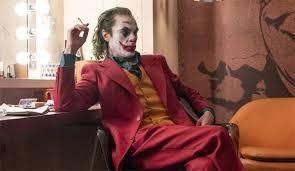
Okay, okay. I guess I can’t avoid it altogether. Do I think this film is dangerous? No. Do I think it insults those with mental health issues? No, in fact quite the opposite. I found the film to be quite sympathetic towards the mentally ill, presenting Arthur as being a dark outlier, not the norm. Do I think the film is making some sort of political statement. Again no. I honestly don’t think it’s saying anything about white people or toxic masculinity or gun violence or anything like that. In fact, if it is saying anything at all, it condemns those who seek to hijack a public figure for their own political agenda (which ironically is exactly what the press are doing with this very movie, but of course critics and journalists can’t see that because they have no self awareness what so bloody ever). The film is what it is. An extremely dark character study of arguably the most famous villain of all time.
Some have criticised the film as being too predictable, which I personally don’t think is a particularly valid critique. Like, yeah, of course it’s predictable. We all know what’s going to happen in the end. The fucking title kind of gives it away. It’s execution that counts, and Phillips and co have done a fantastic job in my opinion. As for those who complained that this film is cynical and nasty and made them feel numb afterwards... I mean... I honestly don’t know what you were expecting. Of course you’re feeling numb. That’s what the film wants you to feel. It’s cynical and nasty because the central character is cynical and nasty. That’s like criticising a comedy for being funny.
Honestly, if I had any complaints, it’s that I think they do paint the story with broad strokes, leaving very little room for subtlety. But having said that, this is based on a comic book about a billionaire who fights psychotic costumed criminals at night whist dressed as a bat. I don’t think subtlety has much of a place here.
Finally I just want to briefly touch on the concern that this film might make the character too sympathetic. First of all, that’s not necessarily a bad thing. Some villains can actually become scarier when we as an audience can empathise with them and understand their motives (see Killmonger in Black Panther). Second, and most importantly, Arthur Fleck/Joker is not a sympathetic character. Yes I did feel pity for him at times, but that’s not the same thing as sympathy. Like I said, this film completely understands the Joker. There are occasions where you do feel sad for the character and wish he could have got the right help, but most of the time (and the film emphasises this throughout) he’s presented as being a deeply disturbed and maladjusted individual and at no point is his behaviour ever justified. Instead it’s presented as being almost inevitable. That in a city as terrible as Gotham, what else could Arthur have become? Joker is a tragic character, but he’s not in anyway likeable.
I would definitely recommend you go and see this movie, especially if, like me, you’ve gotten sick of the slew of formulaic comic book movies and convoluted shared universes. If Joker is indeed going to be the first of an anthology series focusing on telling low budget, character driven, standalone, experimental films, then it’s a very strong start. Whether you liked Joker or not, the fact of the matter is the success of this movie can only mean good things for Warner Bros, DC, the comic book movie genre and the industry going forward, so please go and see this film.
62 notes
·
View notes
Text
Joker gaming
Comic-e book films are in abundance these days and at the same time as they’re all in large part pretty interesting, they may be all quite comparable. Every now after which we do get some thing to shake the style up, that’s exactly what Joker does.
By that specialize in a villain, getting rid of his rival within the shape of Batman, and just telling a very darkish and brutal character-targeted story, we get something relatively new. Now Joker doesn’t reinvent cinema, it’s pulling from a lot of different movies and genres to build some thing new within the comedian-e-book landscape however that’s why it’s so strong.
We see a very iconic person through a new lens and that lens is one this is each captivating and mortifying. Joker follows a mentally-unwell clown who lives along with his mom named Arthur Fleck. Despite his first-rate efforts to be upbeat and tremendous, the sector beats him down again and again and hurts him.
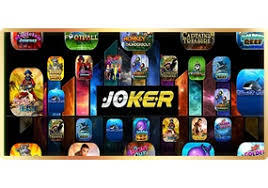
He tries to bring joy to human beings, he desires to be well-known and cherished, but the world rejects him. We’ve all experienced this sense of having the arena against us but Fleck truely receives thrown through the wringer. He quickly breaks and spirals downward into madness, ultimately by chance spawning a political movement to overthrow the wealthy and powerful in Gotham City.
Perhaps the most important and maximum vital issue to Joker is which you’re watching a individual commit reprehensible acts yet… you nearly understand. That doesn’t imply you’re intended to sympathize, he’s bad, what he does is bad but the string of activities that reason it are logical.
That’s in large part in part because of Joaquin Phoenix delivering a overall performance that’s unhappy, empathetic, likable, and terrifying. When you spot him harm, you experience that ache. When you notice him lash out, you experience the horror and weight of his movements. When you spot him do something excellent, you like him. He’s so rather complex and it makes him unpredictable.
You assume he’s going to zig however then he zags. You’re always to your ft and engaged with the aid of what he does. There’s usually a dialogue of who the great Joker is while a brand new actor places at the clown shoes and inexperienced hair but Phoenix exempts himself from the dialogue. He elevates himself to an entire other stage worth of its personal self-contained communique as he weaves in all types of factors to his overall performance and takes new guidelines that one can also have in no way ever taken into consideration.
The Joker is known for his iconic snort and Joaquin Phoenix crafts fun that’s each instantly recognizable and is going a ways beyond a bone-chilling cackle. Fleck suffers from a ailment that causes suits of laughter at random times, typically inappropriate ones. It may be because of fear, disappointment, or anxiety however it constantly makes the whole lot some distance worse for him.
The giggling generally isn’t one among joy, it continually has ache hidden in it. The way Phoenix blends a sound that’s associated with happiness however bakes in sounds of small suffering or appears of simple unhappiness is nothing quick of masterful. It’s by using a ways and away the maximum nuanced take on the Joker and allows us a kind of film we'd’ve never imagined.
1 note
·
View note
Text
Joker - Review
10/11/19
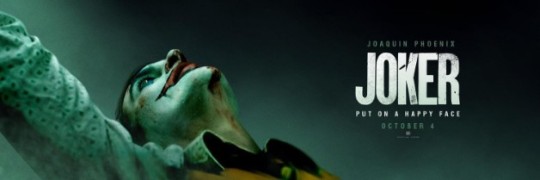
Directed by Todd Phillips (Warner Bros.)
Comic book movies have truly evolved. Growing up with only Tim Burton’s Batman and Richard Donner’s Superman, I was amazed once Sam Raimi’s Spider-Man came out in 2002, and witnessing the booming of superhero movies that followed. With so many comic book movies in existence these days, they’re beginning to have more freedom and diversity in terms of tone and genre. Comic book movies have been adult for a long time, but are especially becoming for mature audiences lately. Joker may be one of the most distinct comic book movies of all time, if you can even call it that. This is a gritty and disturbing character study of a man with severe mental illness falling deeper into the abyss of madness. Masterfully executed in nearly every single aspect, this is one of the best movies of the year, and easily one of the best performances I can ever remember seeing.
Arthur Fleck (Joaquin Phoenix) is a disturbed, but kind middle-aged man who lives in poverty, and aspires to be a stand up comedian (playing a clown as his current gig). He takes care of his mother (Frances Conroy) in their dingy apartment in the equally dingy and gritty Gotham City. After being fired from his job, lied to by his friends, assaulted and mugged on more than one occasion, and a series of other unfortunate events, we see him slowly start to break, and its tragic to see. Phoenix absolutely disappears in this role, and I don’t know if I’ll ever be able to see him as anyone else again. The variety of personality quirks and the way he speaks and laugh are all disturbing, but at the same time, very sad because much of his behavior is not only based on real tendencies, but we see how a society with no compassion affects someone like this.
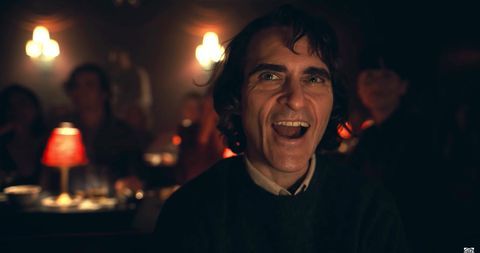
Joker is really about the consequence of a lack of empathy for people with physical and mental problems, and a society that doesn’t properly care for those people as a whole. We see funding cut from social services, and Arthur is no longer able to attend therapy or receive the medications he desperately needs. It appalls me that most of the headlines about this movie, other than it being spectacular, is how this movie could incite violence. Truth be told, this actually isn’t a very violent movie, it’s just that the violence that we do see is brutal, realistic, and intimate. But all of it serves the story and Arthur’s descent to pure psychosis. Every step of his journey is empathetic and you couldn’t blame anyone like Arthur for doing what he does with the world and circumstances he finds himself in. The fact that the real world media wants to blame the film for inspiring violence, and not shining a light on mental illness, proves Arthur’s point in a very real way.
In particular, Arthur’s tendency to laugh uncontrollably not only fits the Joker character, but gets him into all sorts of awkward and dangerous situations. You really feel bad for him, and much of that has to do with Phoenix’s amazing performance. Every single line of dialog and expression feels genuine. What we find out eventually, is that Arthur is not necessarily a reliable narrator. Some scenes that I thought were a weaker element of the film, turn out to be in Arthur’s head, making me want to see the movie again with fresh eyes. Most of the film could be interpreted as literal, but some scenes are up for debate if they even occurred outside of Arthur’s head. This is doubly true for the very end of the film.

Part of my suspension of disbelief was affected when I thought in one or two scenarios, Arthur should have been caught by police. The movie takes place in the late 70′s / early 80′s, so I get that not having cell phones and internet might slow investigators down a bit (compared to contemporary times), but occasionally I thought Arthur wasn’t stopped or caught soon enough, allowing the plot to continue. I also thought there was just a tiny bit too much reference to Batman and potential sequels. I don’t want this movie to be the start of another cinematic universe. You simply can’t get a series of movies that are this deep, this intimate, this disturbing, and turn it into a serial film series with costumed heroes and villains. Or at least, I don’t think you can. Bruce Wayne is in a couple of scenes, but just one scene too many, especially at the end. I do, however, like the added element of Thomas Wayne into Arthur’s story, and thought he was integrated well, having a lot to do with Arthur’s downfall.
There are two scenes near the end that had me on the edge of my seat as much, or even more so, than the best scenes by Quentin Tarantino. The writing, acting, and unpredictability of the scenes had me so on edge, I knew I was witnessing a modern classic. This movie ends on a very satisfying note, and completely works as its own stand-alone film that happens to take place in the DC Universe. Phoenix turns in one of the most jaw dropping performances I have ever seen in my entire life. This is certainly a comic book movie not for kids, and honestly, not for a lot of adults either. Joker is a tragic, and very modern take on what drives a person to madness, especially when people around them, and society as a whole, lack empathy and care for those who need it the most. I’m sure many movies will try to recapture the magic of this film, but I doubt anyone will be able to do it nearly as well and not anytime soon.
9/10
14 notes
·
View notes
Text
“Joker” Review: Send in the (Problematic) Clowns
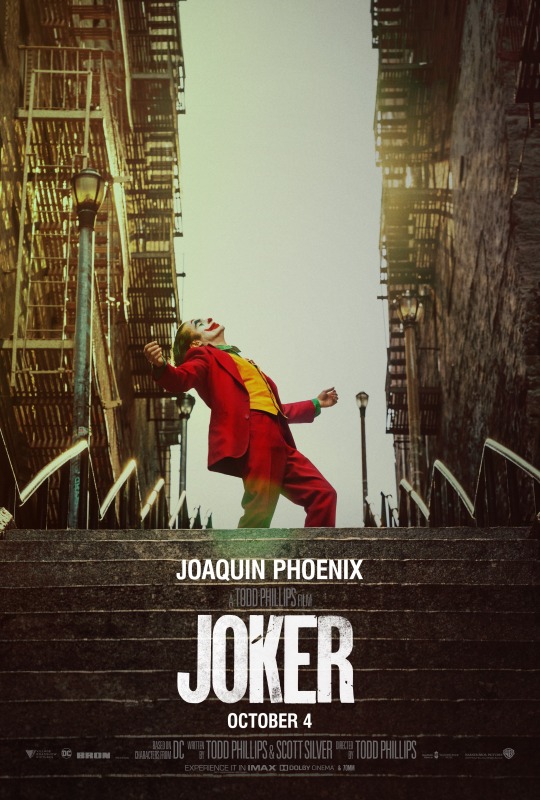
Directed by Todd Philips
Starring: Joaquin Phoenix, Robert De Niro, Zazie Beets, Frances Conroy
“Joker,” on paper at least, has a message most us can all agree on.
Over the last five or six years, mental health has been a subject of increasing importance for a variety of reasons from millennial burnout, substance abuse, increases in suicide and the stigma is slowly dying away. People are more concerned than ever about it and, generally speaking, everyone wants the system to do better at addressing it in society.

(”Office Space” continues to be more and more relatable every year...)
Throughout its two-hour runtime “Joker” makes the case for better mental healthcare and a society that’s more empathetic to the mentally ill. For some viewers this is a much-needed discussion on a complicated topic through the medium of pop culture’s most famous psychopath.
For others (me), the problem is it goes about this in an extremely problematic way that grossly mischaracterizes the problem, the people afflicted by it and namely who the victims really are, making some of the pre-film controversy unfortunately not all too inaccurate.
“Joker” takes place in early 1980s where a man named Arthur Fleck cares for his disabled mother in an increasingly hostile Gotham battling the unfair social structures of society. Arthur struggles with his mental health, seeing a social worker each week, taking multiple psychoactive drugs to keep his mind intact, and failing to keep down a Tourette like laugh that estranges those around him. As the world gets increasingly more difficult to live in around him Arthur begins to see himself in a new way and wonder’s what the point of participating any longer in it, thus beginning a series of events that will change his life and the city forever.
One of the core appeals of Gotham’s most sadistic psychopath, The Joker, has always been that the motives behind his violence have rarely had a clear reason behind them.
Other than to piss off Batman, The Joker just kind of does things because he can and kills for the exact same reasons. There’s no reasoning behind it, he just doesn’t believe in much of anything. It’s just chaos and he loves it. There’s some twisted nihilistic appeal to that in a cruel world that relentlessly reminds us many times of it and it’s what made the Clown Prince of Gotham such an iconic villain across all forms of media.
Because we all kind of want to stop caring, even just a little.

(Iconic.)
But what happens when you try to give a character like this a reason behind his twisted psyche? Does it take away or enhance the character? Many writers have toyed with this concept but never concretely answered it whether it was Alan Moore alluding to him having a “bad day” in “Killing Joke,” or the intentionally vague and confusing backstory Christopher Nolan gave the character in “The Dark Knight.”
The question behind who The Joker is, and why he is, is never truly answered in any case. They still tend to keep it mysterious because well, giving a concrete reason to this character’s particular madness kind of takes away from what makes him interesting. To quote Ledger’s Joker he’s an “Agent of Chaos” and nothing more. The Joker doesn’t care so why should we?
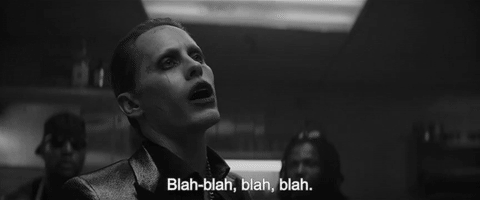
(Let’s really not care about this version though. Like seriously. In fact, throw it in the trash and shoot it into the sun...)
But director Todd Philips decided to give the character his first real motive behind his psychosis in “Joker” and while it can be admirable that he attempted something no other writer or director has done, and in some small way has a positive message to it, the results is at best a boring slog of a movie and at worst a problematic depiction of the mentally ill.
“Joker” certainly get’s A-pluses in plenty of areas of course; Joaquin Phoenix probably deserves an Oscar for his twisted depiction of a pre-clown prince Joker as he fully takes on the character’s twisted, emaciated skin and Philips certainly creates a believable pre-Batman Gotham city with some effective Scorsese-esque shot creation and sets. The movie though is extremely predictable as nothing all that surprising happens from beginning to end. It’s just one shitty moment for Arthur after another, culminating with (SPOILER) Arthur’s encounter with a young Bruce Wayne that leads to the final moments of the film.
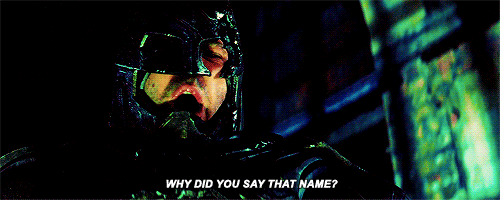
(Did we really need to put Bruce through this again onscreen? The MCU gave Uncle Ben a reprieve at least...)
I wish I could get into the more superficial reasons this movie doesn’t work, such as its overly self-serious dialogue, Philips making some perhaps unintentionally humorous moments in the movie but the problem is truly it’s muddled script that appears to not really understand what mental health issues look like and who the real victims are.
“Joker” appears to make the case that society has largely ignored and left behind those with this stigma, that we are responsible for not engaging with the problem actively and not caring about the problem. Throughout the film, Gotham and its inhabitants are relentlessly cruel to Arthur, sometimes to the point where it can be over the top, showing that this is what we do to people like Arthur in the real world. They are beaten both physically and mentally and we refuse to understand or acknowledge their existence and their problems.
In this way the film almost endorses Arthur’s eventual turn to violence as the price paid for ignoring people like this.
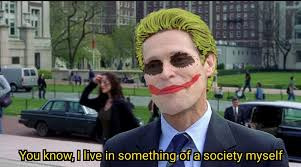
(I’m amazed how literal some of these memes ended up being after watching this movie...)
Again, the problem with this film isn’t that this isn’t a tremendous issue in society because it is; suicide rates are climbing, despite progress in mental health awareness many country’s still stigmatize it as a “you problem,” and healthcare in this country, well you know the drill. The problem is the film seems to make the claim that these folks who are left behind by these broken systems are in danger of becoming violent monsters and it’s fucking gross.
I cannot stress this enough when I say this but there is NO CONNECTION between mental health problems and an increase in violence. In fact, they are far more likely, ten times more likely in fact, to be the victims of the kind of monster The Joker is in this movie.
The idea that simply better healthcare will make those with mental health issues less likely to commit violence isn’t a new one. The NRA and other small-brained politicians (left and right) have been scapegoating them since the days of Columbine and our doofus of a “president” isn’t far behind in licking those boots.
In the wake of the Marjory Stoneman Douglas shooting, as protesters did walkouts to decry gun violence, the mental health “advocates” made a counter protest called “walk-up” encouraging students to talk to each other more and engage with the outcasts in their schools.
While I certainly can agree that we should all try to be nicer to each other instead of not at all, it grossly ignores the fact that the shooter, Nicholas Cruz, was reportedly abusive, sexist and racist to his fellow classmates. Tell me, in what world would it be smart or safe, especially for a female student, to engage with a guy like this? Cruz didn’t kill people because he had “mental health problems,” he killed people because he was evil asshole.
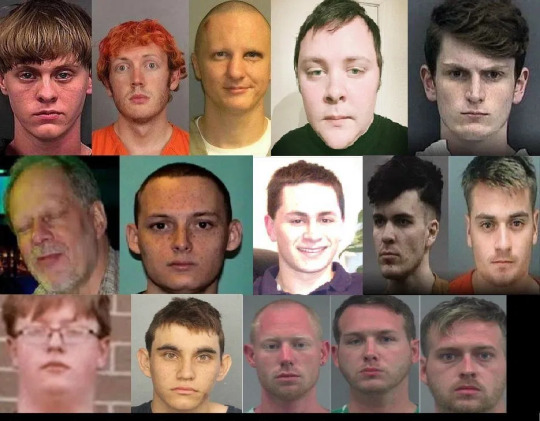
(Yup, these people definitely look just some misunderstood social outcasts who were just in need of a few more hugs and some happy pills. Yup....)
Again, I can’t stress this enough lack of mental healthcare doesn’t make super villains; it’s pure fiction like this movie. Throughout the film Arthur is bombarded with slight after slight after slight be it from the institutions that leave him in the dust or the people around him. The movie kind of wants to state that the intuitions need more help but weirdly at the same time shouldn’t be trusted as Arthur is openly hostile with them throughout the movie. It’s almost comical at times as after a while and some viewers might find themselves after a while going “ok, we get it. The world is really mean to this guy, when does he become The Joker?”
The point is though, the motives behind great acts of violence have rarely, if ever, been about not being able to get access to some guy’s prescription drugs. In fact, the truly mentally ill are far more likely to be a danger to themselves than to others (as stated in a few of these articles linked already).
But for argument’s sake let’s pretend that this is not meant to be a literal depiction of how mental healthcare in society has failed people. Let’s say its metaphorical instead, that those with mental health issues become monsters within their own minds, hell the movie kind of alludes to a bent reality that may or may not have happened within Arthur Fleck’s mind.
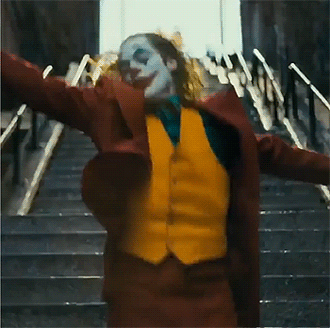
(It’s actually one of the few narrative choices I liked about this movie, so A for effort, Mr. Philips.)
The problem with that is that again it depicts the mentally ill as monsters instead of the victims of those kinds of people. The movie does make a point of depicting the system as monstrous but again a person like The Joker as a product of that is misleading of what is actually going on.
Depicting the mentally ill as monsters, be it metaphorical or literal, will do more harm than good to those who are afflicted by these issues.
While I do not subscribe to the idea, necessarily, that movies create shooters these films definitely don’t exist in a vacuum either. Afterall there are still d-bags who think Tyler Durden is the real hero of “Fight Club,” and idolize maniacs like Al Pacino’s “Scarface” because they’re “badass’s.” I went into this movie thinking the pre-trailer controversy was likely overblown but I came out of it thinking some incel asshole could absolutely find something to relate to in this particular version of The Joker.
This movie has proven to me that the Joker’s origins are simply best left mysterious. He is just best used as a stand-in for chaos and anarchy with no specific goals or ideologies. Though his psychosis has certainly been the stuff of speculation behind his motives for decades by the fans its never been about him being crazy so much as it is about him being the antithesis to Batman’s ridgid sense of law and order.
youtube
(Probably the best cinematic depiction of that clash of ideologies.)
The Joker is a fascinating character and there’s a reason fans have gravitated to him for so long and inspired plenty of writers, directors and actors to try their hand with him. But any amount of understanding regarding what’s going on with mental health in society will take you out of this movie almost instantly for most people.
I think fans of this movie have perhaps latched on to the right messages of the movie, namely that we do need to do better with mental health and the mentally ill in this country, and I definitely don’t disagree with that, but the conclusions this movie appears to come to just aren’t right and it makes the movie damn near unwatchable for myself at least.
I’ll close with this though, “Joker” is inspiring in one way and one way only for me and that’s that it may cause a change in the way Hollywood see’s this genre of movies. I’ve written extensively myself about how, at times, the MCU has too rigidly adhered to the blockbuster formula and created almost a factory-line style of movies for the general populace to devour but a film like this, that is enjoying quite a bit of success right now, could change the way major studios approach these characters.

(The blockbuster formula can be great though sometimes if done right. Exhibit A ^)
Superheroes are modern Greek myths these days and have tons of source material and nuance to mine for directors and writers. Restricting them just to simple heavily CGI, action blockbusters is a disservice to their extensive catalog of stories and the comic book writers that made them famous.
While “Joker” is definitely not my favorite comic book movie of all-time I can respect that it took the risk of doing something different and going against the grain of most of the rest of the genre. If it inspires Hollywood to greenlight newer and more unique depictions of these characters I’m all for it.
In the end though, “Joker” is a mess of a movie that sends some right messages but ultimately the wrong one. If you enjoyed it great, I won’t stop you but I do ask you to think about how this movie could be twisted in the wrong ways as well.
After all, we live in a society...
VERDICT:
2 out of 5

Can we all agree at least this is still the best version of The Clown Prince of Gotham?
#Joker#Joker movie#The Joker#Batman#The Dark Knight#Batman Begins#Christopher Nolan#Todd Philips#DC#DC comics#DCEU#Dawn of Justice#MCU#Marvel#Marvel Comics#marvel cinematic universe#Heath ledger#joaquin phoenix#Robert Deniro#martin scorsese#Gotham#Gotham City#Comic Books#comics#graphic novel#The Killing Joke#Mental Health#Mental Health awareness#mentally insane#insane
9 notes
·
View notes
Text
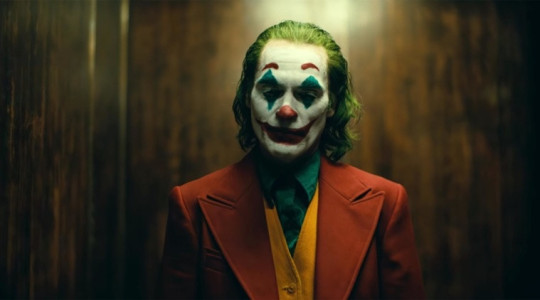
I’m a big fan of the Joker. Ever since I saw Health Ledger’s amazing portrayal of the “Clown Prince of Crime” in The Dark Knight, I was convinced that the Joker was the best, and certainly my favorite, villain in any medium of entertainment. I’ve had Chucks, a pencil case, a wallet and a handful of shirts with Joker prints in them. I’ve even asked my gifted friends to draw me portraits of the Joker. Needless to say, I am a fan. So when I saw the character’s latest cinematic iteration under the writing and direction of Todd Philipps, I found myself unhappy and in a conflicted state. I’ll just say that I don’t like it. It’s still well made and it boasts of another great performance from Joaquin Phoenix but I just didn’t like where the story went and what (I think) it’s trying to say.
This is going to sound preposterous because we are talking about a movie here but I just can’t buy in with its premise and the world that it’s trying to portray. I have too much faith in humanity to really believe that such a cruel world inhabited by heartless people could exist. That humanity would subject itself with so much oppression and a privileged few would be so ignorant to the plight of the many that it would breathe life to an unhinged, mentally-ill, blood-thirsty avenger in the guise of a clown. Even if such a world does exist and we quite possibly, live in it right now, I still find myself still believing in the resiliency of the human spirit. That despite a world in which capitalism and privilege rampantly control, oppress and continue to commit injustices on the less fortunate, the mentally ill, the unnoticed individuals, the everyman and those at the fringes of society. I can still see people rising above all of these things to find a way to survive. I do yield that it’s too hefty of a dream to say that people can topple these structures so we can live in a society with equal bearing but perhaps, survival would be enough? Yes, such words reek of naivety and idealism and I am very much a pessimist but deep down I believe this to be true.
I can’t believe I just said that. This is why I feel so conflicted.
For the longest time, I have embraced how cinema as a medium has portrayed the darkness of humanity. I have seen my fair share of bleak, nihilistic and violent films. To be honest, I prefer to watch films with a heavier tone and a grim sense to them than to watch light-hearted and sappy ones that were meant to uplift the soul. I’d choose dark, tragic, heart-wrenching and bloody horrors, thrillers or dramas over fluffy and light comedies and romance any day of the week. Some of the films that I love are even very much akin to the Joker and revenge thrillers, as a specific sub-genre, are really up my alley. But somehow, I don’t (can’t) like this one. I’m puzzled. I’ve seen and read about more violent films. I’ve encountered other films that contain the same levels of bleakness and nihilism, or perhaps more, than this one does. But this one just doesn’t work for me. It feels glorified and overly sensationalized. There is no glory in pain and there’s nothing sensational about suffering, at the least the ones being portrayed here.
Thinking about it, I would have probably loved this 5 years ago. At this age, I just really mellowed out. I no longer have the same angst and anger to really connect with this film. Well, I think the angst and the anger can never really go away because we live in such an unjust world. What this film did is remind me of a time wherein I was in a dark place. Back then, I really did want to hurt some people. I wanted revenge. I wanted to dish out pain and suffering to those people who have, in my eyes, wronged me. I am scared and ashamed to admit that I’ve fantasized of losing control and letting unadulterated rage consume me. In my head, it always ends up the same. A bloody conclusion. After which, I always find myself ridden with guilt and scared that I would entertain such thoughts. I don’t think I can ever face up to such an aftermath but there was that inkling of curiosity about letting go and losing control and it found a way for me to fantasize about it. I’m well behind those now and I’ve found a way to rein the anger in. I’ve come to realize that it’s much easier to take out the anger on yourself than on others, but that’s neither her nor there so...
I just think this film is problematic. There’s no subtlety in it. That soundtrack seems predictable and some scenes feel tonally inconsistent with the rest of the film. I love Joaquin Phoenix and I think he’s an amazing actor but all that dancing and laughing, it gets old and annoying after a while. Heath Ledger’s Joker did so much more by showing less. He just showed you a look, licked his lips or told a joke and I’m all convinced that he’s not someone to mess with. Phoenix’s Joker just looked silly and barely, menacing. This is not at all a slight on Joaquin Phoenix and both him and Ledger are very talented actors but it’s really hard not to compare and I just think the way this new Joker was written just fails in comparison. I, for one, prefer the Joker written as a chaotic enigma. Someone with no rhyme or reason that just wants to watch the world burn. Yes, I am aware that this is an origin story and he might end up exactly like that. Let’s just say, I’d prefer a Joker that isn’t demystified into a vengeful man that became a symbol of unrest. I don’t want to know where he came from, I just know that he’s there and it’s scary. There’s something scary about not knowing.
By the way, if you really want to see Joaquin Phoenix play a severely traumatized, mentally ill individual hurt people, you’re better off watching Lynn Ramsay’s You Were Never Really Here. I’d say he’s equally as brilliant but that film is much better.
I did dislike Joker but I do appreciate its contemplative nature. The way it forces us to reflect on how we, as individuals and as a society, deal with the oppressed and the mentally-ill. It really reminds me of John Doe’s memorable quote from the film Se7en.
“ Wanting people to listen, you can't just tap them on the shoulder anymore. You have to hit them with a sledgehammer, and then you'll notice you've got their strict attention.”
It certainly grabbed my attention. Just enough for me to write about it.
5 notes
·
View notes
Text
Normies, Horrible movies and The Joker.
Okay first I want to state the obvious, I am a comic book fan. Some have gone as far to say I'm a purist. That being said here are my PERSONAL thoughts and OPINIONS.
So apparently people are uppset about the new Joker movie. Saying its too dark/ graphic/ will make white men murder...yada yada yada. Now some these SJW cunts and cucks are hypocrites. Why? Because they were perefectly fine with the Dark Knight Joker...
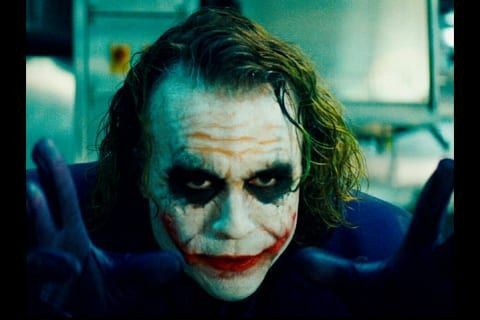
Portrayed by the late great Heath Ledger, this joker had no back story or Origin story and was pure chaos and fire. Killed multiple people, started fires...Joker shit. Yet he was praised for his "Realistic and Dark" portrayal of the infamous Joker.
Confused? Lets jump back to 1989, 30 years ago when Tim Burton directed the cult classic Batman.
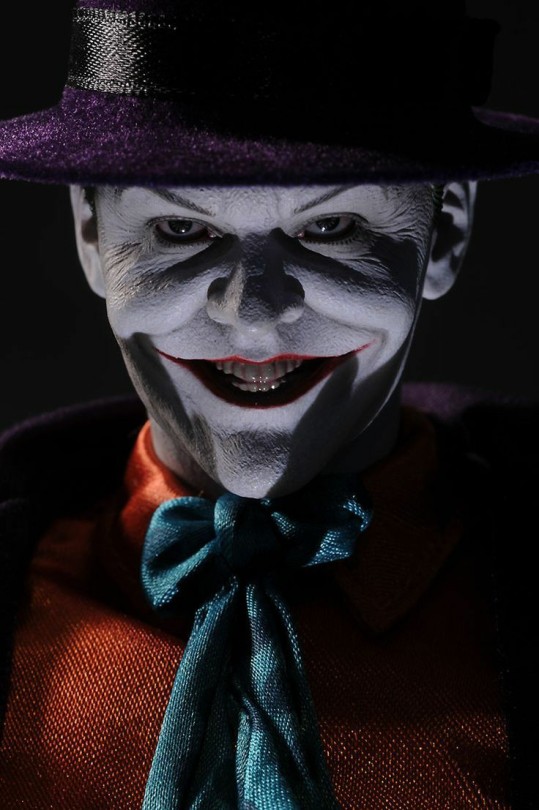
This is Jack Nicholson, who played Joker in the film mentioned aboved. The late 80's portrayal of joker was just as "Dark" but more comic book ( Not a bad thing in this case). Nicholson dig deep and gave a award-winning performance. With wit, style and murder. Many who claim to be SJW's loved this Joker.
Yet here they are trying to ban the ingenious and well crafted film that is the Joker, a one off stand alone Origin story.
There is no definitive Joker Origin story with in DC nor should there be. I personally love the Killing Joke Joker ( the graphic novel not the trash woke animation) but this movie deserves its place. It was like watching a DC graphic novel of the Joker.
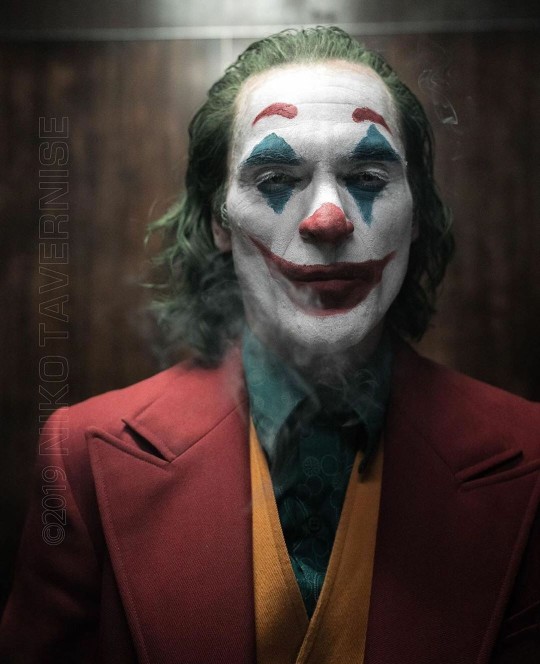
This is Joaquin Phoenix, who played this "problematic" ( God I fucking hate that word) Joker. This origin story went deep into mental illness and the dark path Arthur ( the joker's name in this version) is pushed down and his transformation into the Joker. With an unsettling but wonderful gritty realism. It's rated R ( which honestly anything that includes a proper Joker should be rated)
Now the SJW's have their panties in a bunch but yet no out cry of the senseless violence shown in the upcoming Harley Quinn movie. It's titled Birds of prey but ...let's be honest its HQ show. Not even a true portrayal of The red and black PhD wise craking, fun loving harley from the days of the Batman the Animated Series or even from Gotham City Sirens ( which Birds of prey was suppose to be named, but due to the fact Catwoman and Ivy might over shadow thier cash cow and the fact DC has a bunch of eggs in other baskets it was changed.)
https://youtu.be/XDlZ1eJOUKc
We can all agree suicide squad was TRASH. Not only did it not pull enough from its graphic novel counterpart or multiple sources and storylines with in the comic book world. It's casting, writing and production left everyone wondering ( everyone except the Normies) what the fuck is this shit?
Well to capitalize on wokeness and forced female leads they pull out birds of prey. Race bending black canary and other issues. Like the fact that harley isn't in Birds of prey and it focus is mainly on Huntress, Black canary and sometimes batgirl/ batwoman ( not the lesbian one but Barbra Gordon as shown below)
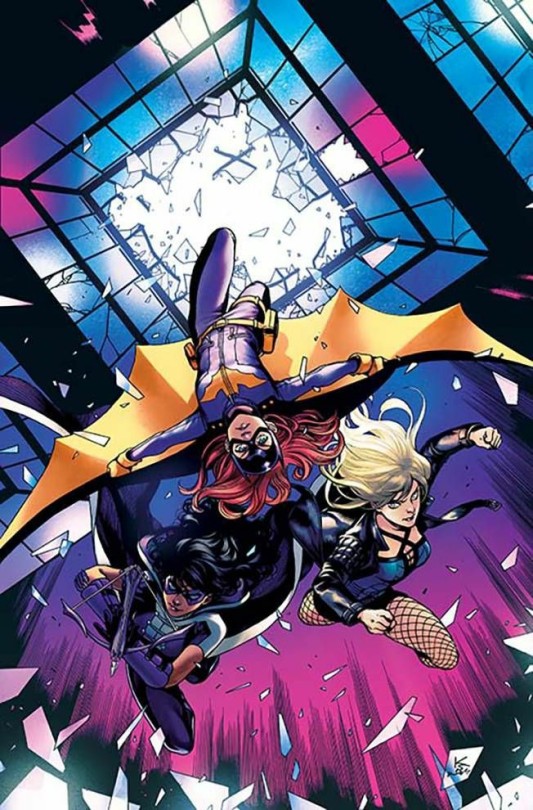
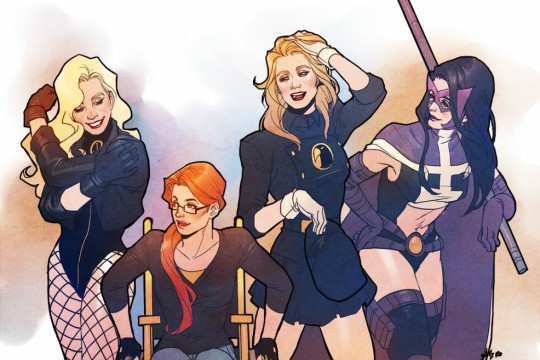
Normies are those who do not read the comics, or just know the mainstream characters. ( nothing wrong with being a Normie) unless you are dictating what should and should not be in a live action film based off the comics. Then we have a problem. Because of this awful woke culture some of my favorite characters have ruined, race bent, gender-bent or just emasculated for the sole purpose of pleasing SJW normies.
https://youtu.be/Yg1uqV2E4aE
This is a problem because not only is it disrespectful to the character, the source material and those who've bought/ related to these characters and storylines but to those who created these characters and stories.
My point is this, stop compromising great writing and storytelling to please people who do not really give two shits about it. These people are hypocrites and have never understood the source material. The dumb bitch who wants to change the name of the Xmen because she thinks its sexist? Does she even know why Xavier named them this? No, she doesn't if she did she wouldn't have opened her goddamn mouth.
Xavier sought out Summers and enlisted him as the first of his X-Men, Cyclops. Xavier called the team "X-Men" because each one had an "extra" power that normal people lacked. (Not so coincidentally, of course, "X" was also the first letter of Xavier's last name, and he himself took the code name "Professor X.")-
furthermore to prove my point -
From a social policy and philosophical perspective, Xavier deeply resents the violent methods of those like his former close friend and occasional enemy, the supervillain Magneto. Instead, he has presented his platform of uncompromising pacifism to see his dream to fruition – one that seeks to live harmoniously alongside humanity, just the same as it desires full-fledged civil rights and equality for all mutants. Xavier's actions and goals in life have therefore often been compared to those of Martin Luther King Jr. for his involvement with the American civil rights struggle, whereas Magneto is often compared with the more militant civil rights activist Malcolm X.
The character's creation and development occurred simultaneously with the civil rights struggle, taking place in the 1960s, while Xavier's first appearance dates to 1963. The fictionalized plight in the comics of mutantkind faced with exceptional intolerance and prejudice was done in large part to better illustrate to audiences of the day what was transpiring across the United States, just the same as it also served to further promote ideals of tolerance and equality for all.
Did you catch that? Equality for All! Well I'll be damned X-men isn't sexiest after all. This is the glaring problem for me at least.
So lets go back the Joker and his source material shall we?
In his comic book appearances, the Joker is portrayed as a criminal mastermind. Introduced as a psychopath with a warped, sadistic sense of humor, the character became a goofy prankster in the late 1950s in response to regulation by the Comics Code Authority, before returning to his darker roots during the early 1970s. As Batman's nemesis, the Joker has been part of the superhero's defining stories, including the murder of Jason Todd—the second Robin and Batman's ward—and the paralysis of one of Batman's allies, Barbara Gordon. The Joker has had various possible origin stories during his decades of appearances. The most common story involves him falling into a tank of chemical waste that bleaches his skin white and turns his hair green and lips bright red; the resulting disfigurement drives him insane.
Now just sit with that a bit.
2 notes
·
View notes
Text
I'm bored so here's my take on the Joker:
I don't think hes crazy. Paul dini and Grant Morrison a both said something similar. Morrison even used the term super-sanity.
“It’s quite possible we may actually be looking at some kind of super-sanity here. A brilliant new modification of human perception, more suited to urban life at the end of the twentieth century…He creates himself each day. He sees himself as the lord of misrule and the world as a theatre of the absurd.”
And I have to agree with that. I don't see the Joker as just crazy. I don't see him as the comic relief. I don't see him as just psychotic. In all of the best representations of him he's portrayed as having a genius-level intellect. One that rivals Bruce and Lex Luther both. So thinking back to that term of super-sanity. I think it's almost like how a scientist would view a lab rat. His mind is on such a different level, he sees the world from such a wider scope, that he doesn't care about the small and petty lives of the rest of us. The Joker sees how truly impossible and magnificent and chaotic the world is.
“All the world's a stage, and all the men and women merely players; they have their exits and their entrances; and one man in his time plays many parts.”
The Joker is a man who sees behind the curtain of that stage. And that's the joke. The lives that people live, the so-called normal nuclear families that they have, the 1.5 children, the white picket fence, the 9-5 office job. All those little things that people think make life worth living are actually the lies we tell ourselves in order to cope with the fact that we are just a tiny speck of dust in this sprawling and incomprehensible universe.
“And in a weird way I think he’s a hundred percent sane. I think the things he does, the way he dresses, the way he acts, is kind of an act. That he’s like a performance artist. Everybody says nobody would behave that way. And The Joker has the sort of clarity where he knows what he’s doing, he enjoys what he doing, he enjoys what he’s doing, he loves what he’s doing. And that must come from madness inside him. And I mean, I think Grant Morrison said something something similar like that he’s sane in this weird insane way. I’m badly paraphrasing what he was saying. But it’s almost like a super-sanity, I think. And I’ve often felt that about about the Joker too. That his greatest joke is convincing people that he’s insane when he’s actually just this bastard. And, uh, well he’s a sociopath. There’s no doubt about that. Whether or not he’s he’s clinically insane is another matter.” -Paul Dini
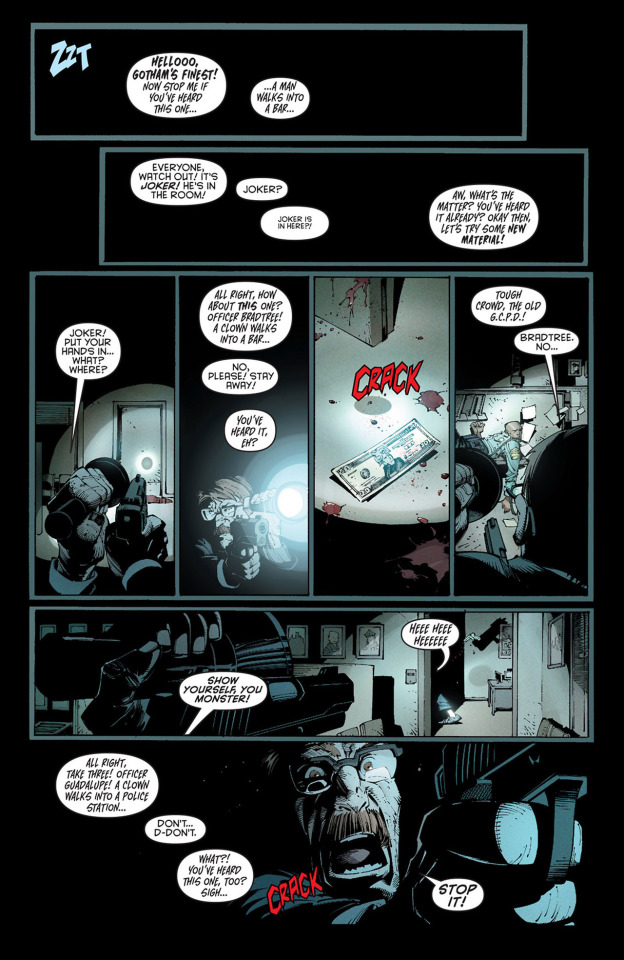
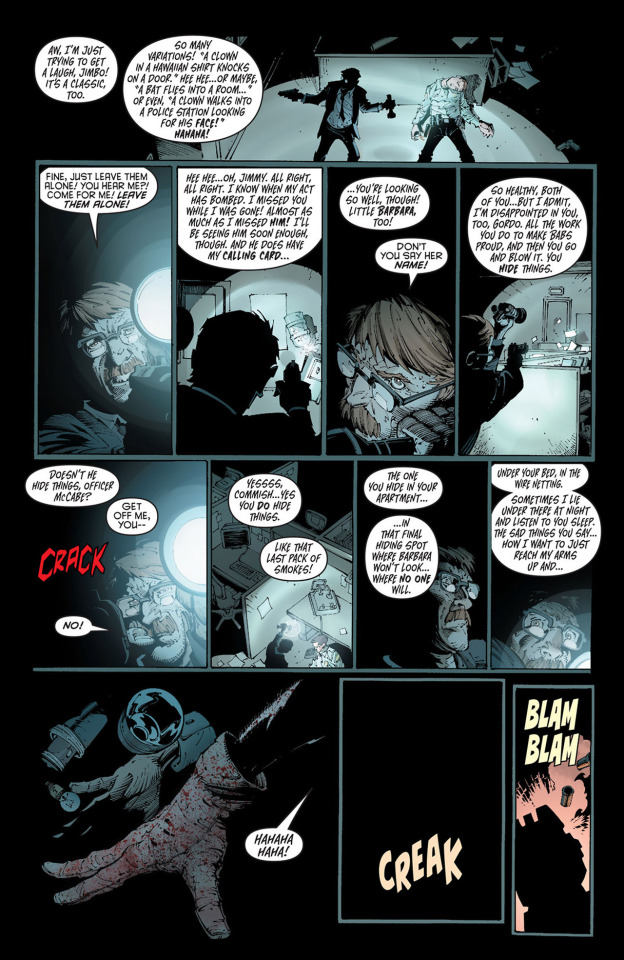
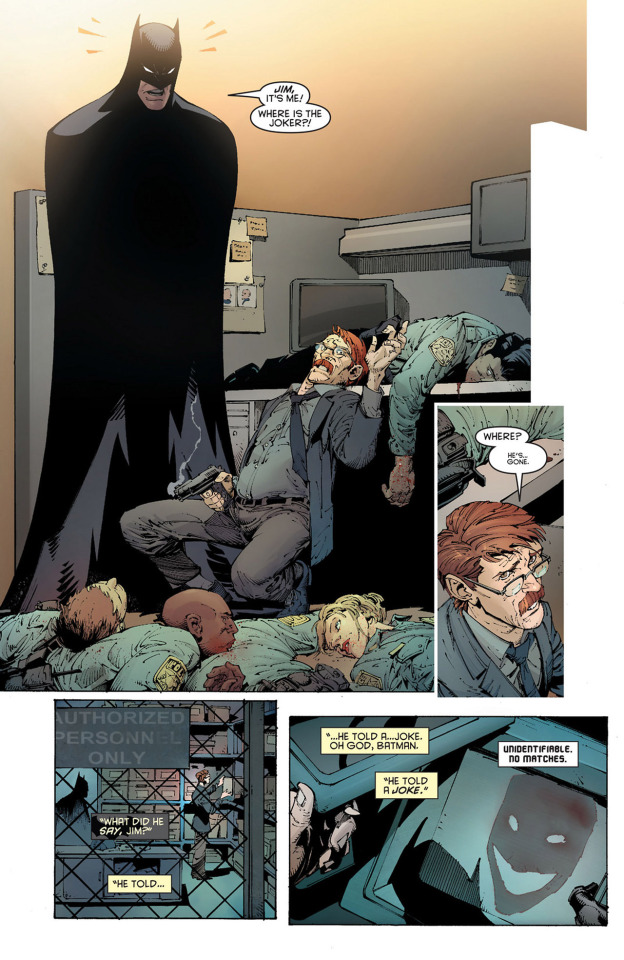
And he believes that the Batman is on his level. He believes that the Batman has his same level of intelligence, the same capabilities of seeing what he believes to be the bigger picture. The Joker believes that the Batman is capable of so much more, but it's his need to defend the lie of these petty little innocent lives that's holding him back. All of the atrocities that the Joker commits, are a gift to the Batman. The Joker is trying to open his eyes. Trying to push the Batman over the edge so that he could finally break from the delusion and reach his full potential.
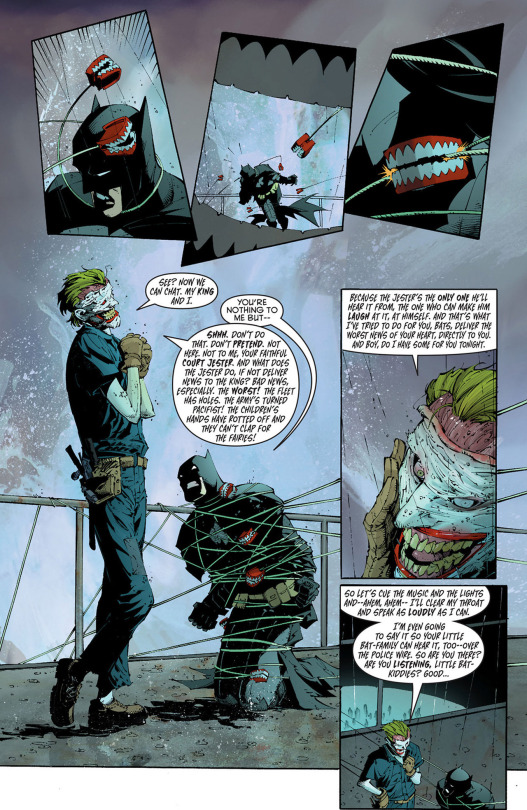
And I love that the Joker was in some ways created by the Batman. I know that his origins have changed from time to time, but the most common one is that he fell into a vat of chemicals during his first confrontation with the Batman. I believe that the Joker was always intelligent, I believe that he believed there was more to the world. But he grew up in a society, in a culture, that ingrained in him the same lie that we all have about what life is supposed to be. That moment of being on the edge of death, facing that new and exciting and nightmarish figure of the Batman for the first time, then being pushed into those chemicals and changing in ways he never would have expected, I think all of those things are what forced The Joker to open his eyes and become what he is now. Maybe that's the cause for his obsession with Batman, his need to give back to the one who birthed him into this new way of life and this new way of thinking.
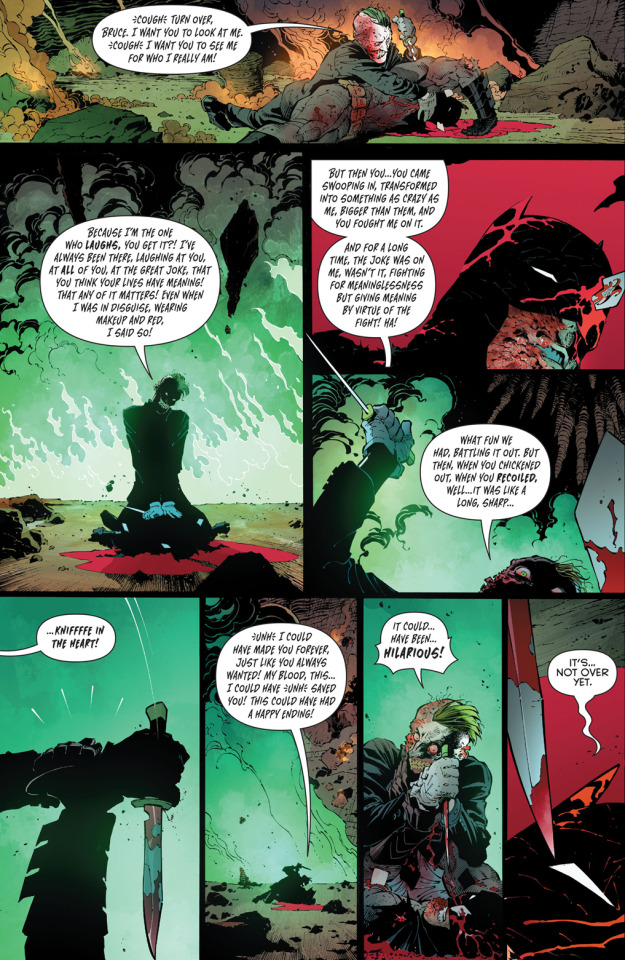
And when I think of it in those terms, I can understand where the Joker is coming from. Batman lost his parents when he was a nine-year-old child. It wasn't some mass conspiracy. It wasn't a super villain. They weren't targeted for being rich. It was just a random mugging from a random person in a random dark alley. It was meaningless. Wrong place at the wrong time. A moment of Chaos. And Batman has grown up since then devoting his life to logic and reason. Becoming a detective, pouring himself into the Sciences, searching for meaning. Trying to understand crime in order to end it, and prevent it before it happens to someone else. Batman is all about logic and order and reason because he has to be. Because if he wasn't a man of reason, he would crack and lose his mind. He holds on so tightly to what he believes in because if he didn't, he might see the world just chaotic as the Joker sees it.
To me, that is the point of the Joker. He's not meant to have an origin story. Not really. He's not meant to be someone you can sympathize with. He's meant to be the Batman's opposite. He is the agent of chaos, meant to tempt the man who is constantly on the edge.
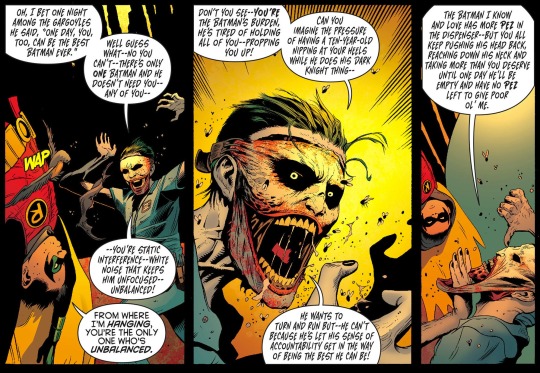
Jared Leto sending a rat in the mail to Margot Robbie, and bullets to Viola Davis in some poor attempt to emulate the joker for the Suicide Squad movie was just insulting. insulting to the joker, to his cast mates, and to the profession of acting. he wasn’t acting like The Joker, he was acting like some emo-goth-columbine shooter worshipping-marilyn manson listening-hot topic shopping-hichschool asshole. that’s not the Joker.
and now this new movie? this Todd Phillips and Joaquin Phoenix Joker origin story doesn’t resemble anything of the Joker to me either. giving him a name. Arthur Fleck. A.Fleck. a name that is an obvious dig at a former Batman actor. it’s too much. a Joker origin isn’t needed. and a Joker story without the Batman is missing the entire point of the Joker.
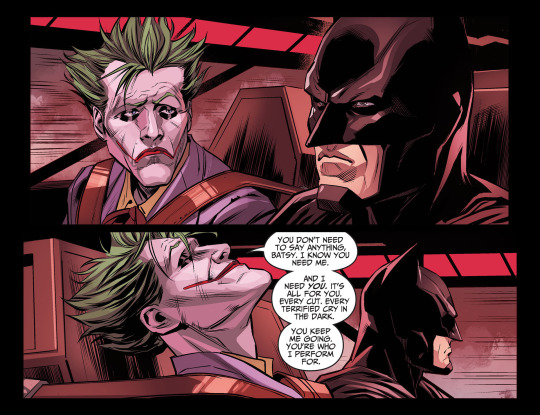
the internet trolls and “why so serious?” incels are probably going to love this trash though.
9 notes
·
View notes
Text
LEE INTERVIEW 2
Ben: So yeah, again, these are like really simple questions. No real brain busters. Should I just start? Lee: Yeah, just dive right in, man. Ben: Okay, cool. So what was the last thing you had to eat? Lee: Ahh, this morning I had some breakfast, I made some... potatoes, some scrambled eggs, with a little bit of creme fraiche in em and some cilantro and some sausage. Ben: Oooo! Lee: And then I hit it with a little green Tabasco. Ben: I was gonna ask you any ketchup but green Tabasco, okay. Lee: Yeah, green Tabasco. It's the only way to fly. Ben: Nice. And I was gonna ask you what was the last thing you had to drink, but I can join it up with this question: did you have coffee this morning and how was that? Lee: Yeah, I have coffee every morning. Ben: Does it make you, like, wanna listen to heavy metal or? Lee: No, just a pleasant way to ease into the day, I find. Come down and throw on a pot. Feed the dog. Let the dog out. By the time all that's done there's a fresh hot pot a coffee waiting for me. And just sip on that for a while. Ben: Nice. So in general it usually relaxes you? Cuz I know sometimes for me it can give you that gentle boost you need or like for me it'll make me wanna do like twenty different things at once and plan a trip around the world. Lee: Yeah, I think the jitters is what they call that. But ah, I'll just avoid drinking it late at night, other than that it keeps me rollin through the day. Ben: Yessir. Cool. So when was the last time you had a Pop-Tart? Really random question. Lee: Pop-Tart? God I feel like it was actually more recent than you would think, but I can't put my finger on when it woulda been. I feel like Pop-Tarts were in my life fairly recent... Oh yeah, cuz my fiance's brother is big into Pop-Tarts, so I think when he was out here earlier this fall he had a little stash and then when he left I think there were a Pop-Tart or two leftover. So I'm gonna say it was probly sometime possibly after Thanksgiving but before Christmas. If you can believe that. Before that it was prolly... ten years? Ben: I can, yeah. Cool, so pretty recently, I knew there was a reason I asked you that. Lee: Oh, yeah. Very timely question. On point as always. Ben: Haha. Those things will last twenty years in the cupboard. May as well not let em go to waste anyway. Lee: No. In fact I'll probly go back inside and check and make sure I didn't miss any on my last round. Ben: Haha. Okay. I have just so many random questions just scribbled down. What one makes sense next. Lee: That's cool. Ben: Arrre youuu watching any shows right now with your fiance, since you just mentioned her. Any Columbo. Lee: No, we haven't... well, I'll take that back, sooo... we both enjoy The Marvelous Mrs. Maisel on... Netflix, I believe? No, it's not Netflix, it's Amazon. Ben: Yup. Lee: Yeah, that's a really good show and I think they only have like two or three episodes left in the, I guess it's the series. It's definitely season 3 maybe but I don't think they're makin another one after that. Ben: I've heard it has great costumes. Lee: Yeah, great costumes, great set design. The dialogue's just... razor sharp. (starts laughing to himself) Ben: Haha, yup. Lee: And it's a pretty unique concept or storyline or however you wanna put it, it's not something I've seen anything like before so... Ben: And that's about the housewife who becomes a standup comedian? Lee: Yeah, pretty much. Yup. Ben: Okay, okay. Is she your favorite character in the show? Lee: She's great. She's also got this lady who plays her manager who's (starts laughing to himself again) pretty hilarious at times. And then, oh, maybe you can help me with this one -- her dad is played by the guy who was in that show, you would know his name. He was in, I wanna say he was in The Man Who Wasn't There but I can't put my finger on where he woulda been. But he played that like neurotic detective on some TBS show I can't remember. Ben: Huh. Okay. I don't think I can remember? But I'm just gonna look it up and I'll include it in the transcript of the interview. https://www.imdb.com/name/nm0001724/ Lee: Yeah, but his character is probably my favorite of the bunch. Ben: Nice. So Mrs. Maisel and no other shows right now? Lee: No. No, we try to avoid the TV as much as possible which we do a really good job at but every once in a while we’ll watch... we watched Clue? The movie Clue last night from 1985? Ben: Oh I love that one. Lee: Yeah, it's the first time I'd seen it. Ben: Oh, it's great. Great ensemble cast. Lee: Yeah, Christopher Lloyd and the guy whose name I don't remember but I think he was in like Rocky Horror Picture Show. Ben: Tim Curry. Lee: Tim Curry, yeah. He was really good. I didn't recognize anyone else, I think. Ben: Yeah. And then the maid. I've seen it a couple times but when you're really young that maid with the great cleavage, it's like, I like this movie. Lee: Lotta great cleavage in that movie, to be honest. I pointed that out as we were watchin it, I was like, yeah... pretty decent amount of cleavage. They knew what they were doin back in the 80s. Wouldn't get away with that now, I'll tell you that much! Ben: Yup, yup. Lee: So yeah, that's about it. Ben: That's a good one, man. So keeping on this same line of questions: last movie you saw in the theater?? Lee: I do actually know the last movie I saw in the theater is I went to see Joker. Ben: Nice. Lee: And I was thoroughly disappointed in that movie, I didn't like that at all. Ben: Really? You thought it was overdone? Lee: Uh, yeah, it's just, I didn't find it at all... interesting, or compelling or... I dunno. Like I just didn't understand why I was sittin there watchin it. And I love Joaquin Phoenix, I think he does a great job in everything I've seen him in but I didn't find his performance all that interesting, or I didn't find the character of the Joker the way they wrote it all that interesting either. I've heard it compared to like Taxi Driver before but it was basically the same story, this kind of loner, isolated, gets a little obsessed with the wrong things and all of a sudden he's crazy. Ben: Right. Yeah. And that was the last movie you saw in the theater? Lee: Yeah... I think so. And then before that Christopher Robin. Ben: Cool, haha. How was that? Lee: That was a great movie. I'll take Christopher Robin over Joker any day of the week. Ben: Hahaha. Lee: What are you laughin at? Ben: Did you see that with your nephew or with your fiance? Lee: Well she was not my fiance at the time but uh, we had just started dating and we went and saw that and, both enjoyed it. Ben: Nice. Have you been listening to any music? Lee: Mmm, gash. I meaaan... a little bit. We'll throw on some tunes around the house every now and then. Ben: Do you have a speaker system or like a bluetooth speaker err? Lee: Yeah, like a little bluetooth speaker, which is fairly decent, it just kinda fills up the room. And then if I'm workin out I'll put on somethin in the headphones just to supplement the coffee, so I feel like I can take on the world. But it's been a long time since I've consistently listened to music, I'm more into podcasts and stuff these days. Ben: Yea, I think that's like a lot of people. What are your favorite podcasts? Lee: Uumm... geez louise... aahh... my favorite podcast is called Part of the Problem by a guy named Dave Smith. And it's sort of a equal parts I guess political and current events. Ahh... what would you call it. I dunno... discussion, or whatever. Ben: Discourse. Lee: Huh? Ben: Discourse? Lee: Yeah, well it's him, Dave Smith, who actually got his start in and still is a standup comedian, so he's got a really good talent of bein able to sort of dissect political news, current events news and then put a usually pretty funny take on it. And if not he's just an incredibly interesting guy and has a take that I sort of identify with more often than not, so... Ben: Is he our age or older err? Lee: Actually, yeah, he's exactly our age, I believe, he's 36, 37. Your birthday's comin up, what, next week, right? Ben: Uh, yeah, I guess it's kinda been in my mind but, I'll be celebrating by myself. Lee: Are you ready? Ben: Yeah, 37! Seems like a fine age, ya know? Lee: It is a fine age, to be sure. Ben: Yeah, yeah. Just keep on learning little things, little improvements. Lee: Yup, every day. Ben: Soo... podcasts, so yeah, any others besides the Dave Smith one? Lee: Umm... I mean, yeah, I mean I've sort of got my little Rolodex that I'll roll through from time to time, this guy Tom Woods I like listenin to a lot. I've actually been pretty good at eliminating podcasts from my diet, not addin em, just kinda cuttin out the riffraff. Ben: Some podcast pruning? Lee: Yeah, exactly. The Joe Rogans of the world have no place in my heart anymore. Ben: Shh, I was just thinking the other day about isn't it crazy Joe Rogan is like the Walter Cronkite of our generation? Lee: Haha, yeah, I know, but he's such a fucking douche too. Not that Cronkite wasn't a douche but... Ben: It's like, can you picture Walter Cronkite being into jiu-jitsu, I mean, tha'd be pretty great, but... Lee: That would be pretty great. And like slammin DMT and smoking like insane amounts of weed and basically just agreeing with everybody on his podcast, everything they say all the time. Ben: Haha, ahh, him saying JFK was assassinated and then immediately smoking a joint right on TV, that would have been great. Lee: Yup, and then comin up with some conspiracy theories and then backtracking completely within the next 24 hours. Ben: Haha. Well another little random question at the top here is, how do you get your news? Is a lot of it through podcasts or? Lee: Umm, yeah, well what I consider news is not what used to be considered news, like I don't really get day-to-day news because it's all so preposterous and I mean it doesn't affect anybody's life really in any way other than some major stuff, ya know, issues of war and peace and issues like global pandemics, those are gonna affect you much more than, ya know, if you just sort of think back on the last ten to twenty years of what the news cycle consisted of it's just largely preposterous and irrelevant and usually not even true and when it is true it's so quickly spun into a cause or some, you know, political stance, it's like, I'm kind of pruning podcasts and I'm also pruning unnecessary information or opinion out of my life as much as possible and really been enjoying that so, I just gotta find really people I trust and usually not even from a news perspective but if they are discussing something it might pique my interest to look into it a little bit. I'm still stickin with things like theory over day-to-day, you know, I'll prefer to read economics or history or something rather than turnin to the news because I feel like you can learn so much more about patterns and humanity and what not by doin it that way. Ben: Right, right. Your degree is in philosophy, right? Lee: Yes. Ben: Yes, cool. So yeah, the day-to-day politics is pretty much just like watching Real World/Road Rules Challenge, it's just like all drama, people talking shit about each other behind their backs, people tweeting nasty things... Lee: Yeah, but I don't want the takeaway of this to be that the Real World/Road Rules Challenge isn't a fantastic show because it is. Ben: Haha. Lee: Honestly, I think that was a terrible comparison that you just made? I THINK I get where you're comin from but...? Yeah, it's just so dumb, it's not only that it does not seem true or accurate or important at the time but, what?, less than, what, 72 hours usually it's just like, nobody's talking about it anymore, nobody cares, nothing has changed. I just feel like it's a really great way to fill your life with a whole bunch of unnecessary anxiety and anger and animosity towards other people or other groups or whatever it is, it's just like a really awesome way for you to distract yourself from what actually should be at the front of your mind which is what you're doing on a day-to-day basis and the health and well-being of your family and close friends and, sorta how you can contribute to makin the world a little bit better and makin yourself a little healthier and happier and the people you love happier as well. Just don't have any time for it. Ben: Right. You don't have any time for, “Nancy Pelosi ate Mitch McConnell's ice cream out of the fridge” and uh... Lee: Haha, “She drank his milkshake!” No, I don't, I mean every once in a while I'll kinda click somethin, tune back in, just to remind myself how... how... just the word I keep using is how preposterous it all is and how much weight some people put on it and like I said it just becomes such an unnecessary energy suck and soul suck and just, yeah... No need! Ben: Yeah, yup... So what are your go-to apps? What apps on your phone do you find yourself using the most? Lee: That's actually interesting, I sort of am gonna contradict myself but there’s an app I use called Newsvoice which, I liked it a lot better when I started using it, now I feel it's not quite as cool, but it used to just be an app that would compile headlines, you know, local, international, national, whatever, and it would offer, say, for every story it would give you five or six different headlines from different, um, organizations with different political leanings, so you'd get like a HuffPo article and then you'd get a, you know, Wall Street Journal and you'd get the same story covered four or five, six different ways, which is kind of a cool way to avoid unnecessary bias. So that's one I've kinda been hittin up a little. I've really been enjoying everyone's hot takes on the Facebook app with this Coronavirus, just really gettin a sense of (starts laughing) how everybody's reacting. That's really enjoyable. Ben: Yup, yup. So Newsvoice and Facebook? Lee: Yup, I like those. And then you know, I do all my mobile banking and bill paying through apps, so I got apps for those. Ben: Useful... useful. Lee: Yup. What else? Oh, Golf Clash. That's a great one. I play a little Golf Clash when the time is right. Ben: Golf Clash, niiice. If you hit a good ball on that is it like do you feel it in your body still? Lee: Oh, it'll let you know. They'll yell great shot at you or perfect shot and it's like, my entire day has been validated. Ben: Haha, nice. All right, soo... going back to the music question, I know you said you're not listenin to too much music but what was the last concert you saw? Lee: Ooo. Wow... Ahh... Honestlyyy... unless I can remember something else, I think it was the Rancid and Mighty Mighty Bosstones New Year's Eve bash in Los Angeles. Ben: Nice. Where was that? What was the venue? Lee: That was aaat... oh god, if you rattle off a couple of the big ones around there I'll remember it. Ben: Ehhh, I'm blanking on those, there's the Hollywood Bowl of course but it was probably at a smaller club. Lee: No, it wasn't that, it was an indoor venue. Ben: The El Raaayy. Lee: No, it's recongizable but I can't remember what it was. https://en.wikipedia.org/wiki/Shrine_Auditorium But that can't be right though because that would have been like... four years ago at least? Ben: Yeah, and when did we go to that Weezer/Panic at the Dis... maybe I shouldn't even mention Panic at the Disco but when did we go to that Weezer show, was that four or five years ago? Lee: You mean when Weezer opened up for Panic at the Disco? Ben: Ohh god, no, no, Panic at the Disco opened up for Weezer. Lee: “STOP SMOKING!” Ben: Hahahah... oh gosh. We didn't really fit in with the Panic at the Disco fans. Lee: No, but was that after? Cuz honestly, man, my timeline is so blurry and like out of sorts that you could literally pick an event within ten years and another one within ten years and I couldn't tell you which came first, with like a four-year margin of error. It's pathetic. Yeah, I don't remember. I honestly don't remember. Ben: Yup, but that Rancid/Bosstones New Year's show was pretty good? Lee: Oh, it was awesome, man. I was like thirty rows or, it wasn't rows cuz everyone was standing up but I was probly about thirty heads deep, so great view of the stage and what I considered close but I was like, well this will be certainly out of the way of any aggressive moshpit that might break out. So I was just kinda sittin there waitin for the show to start, sippin my beer, Rancid comes out, and like the FIRST note they play, which is from “Maxwell Murder” cuz they played ... And Out Come the Wolves from start to finish, first bass note I just get a fucking forearm to the back of my head and my beer goes flying like six rows up. I was like, well this is on! Ben: Haha. Lee: I kind of fought my way out of it but basically just retreated another thirty rows and, enjoyed the rest of the show. Ben: Nice. Got another beer, I hope. Lee: Got another beer or two, although I did have to be, that was when I was doing the PI work so I had to be like downtown at like six in the morning for some surveillance thing, and the show basically didn't start until almost midnight, so I didn't get insanely intoxicated or anything cuz I was trying to be responsible cuz I had to be at work the next day. But it was a blast. Ben: I think the Rancid lead singer... Tim Armstrong? Lee: Yup. Ben: I think he lived in our neck of the woods. I think he lived in Highland Park. Lee: Yeah, he did, I think he lived in Highland Park and that bar that Heather used to work at, she said he used to go there quite a bit and just hang out. Ben: Yup, I love that place. Lee: Eedendale or Ed-endale? Ben: Edendale, yup. Tom Mix, Casey Mix's grandfather's old stopping grounds. Lee: Isn't it crazy how you can remember like these minute little details like that but you ask me like what year something took place and I'm like, I have no idea, I think it was some time in the 90s but I could be wrong about that. Ben: Haha. I think Zack de la Rocha from Rage Against the Machine also lived in Highland Park/Eagle Rock area. Lee: Yep... yep. Although I think he's about to move up because from what I hear, the crazy anarchist/socialists of Rage Against the Machine are reuniting to go on like a CitiBank tour or something (starts laughing). Ahh, that's so fucking depressing. Ben: Haha. They're finally taking the corporate money. Lee: Well everyone's gotta make a living, ya know? Couldn't happen to a nicer guy. Ben: Haha. So are you reading any books? Lee: Umm... actually no, I'm not. I've been sort of lookin around for a book around here that I haven't read but I feel like every book I have I've read at least once or twice. I kinda want something new but of course the libraries are shut down. Ben: Right. You want something fiction or nonfiction or? Lee: Yeah, I don't read fiction. I haven't read any fiction since I think R.L. Stine back in the day. Ben: Haha, gotcha. Lee: I just find nonfiction a lot more interesting. So yeah, I’m not reading anything and I'm ashamed to say it, because it's a great time to read. Ben: Yes... indeed... uuumm... so what was the last alcoholic beverage you had? Do you like to have a drink some nights err? Lee: Oh yeah, oh yeah. Typically my go-to has always been whiskey. But I was talkin to a colleague at work and he was sayin that he just really enjoys drinking tequila and I was like well I’ve never really had a taste for tequila and he just started talking about how great it was and then I was like well shit, maybe I should give tequila another try, so last couple nights I’ve had a little bit a tequila, which is... somewhat enjoyable. Still not my thing but... Ben: Yeah. It gives you energy, I think it’s the only... upper? Lee: Yeah, the only upper, stimulant, whatever. That’s what he told me and I was like, well that doesn’t make sense cuz it’s alcohol and alcohol is a depressant all the time, it just depresses your nervous system. So then I looked it up, er, googled it, and it was like a super non-clear, vague answer and it was like, well while it technically is a stimulant it’s also ethanol which is also a depressant. And I’m like, well what the fuck does that mean? But I did notice that when I was drinkin it, we were sittin there playin Yahtzee and I was like fired up. Ben: Right? Lee: I dunno. I dunno if it’s just fired up just cuz of the Yahtzee and I thought it was gonna be lame and I fuckin loved it. But I was super into it and I was kinda shakin my leg a little bit like, yeah, let’s do this, let’s play some more Yahtzee and I was like, is this the Tequila that’s doing that or is this the Yahtzee or am I just like in a really good mood. Ben: I think that’s what tequila does cuz I HATED tequila, never drank it, I remember sitting next to a girl at a party at Saint Mike’s and her breath, she was drinking out of a big bottle of tequila and her whole being just wreaked of cheap tequila. And I think I was like nineteen or twenty at the time so I was like, that is the worst smell I’ve ever smelled, I’m not going anywhere near that. Flash forward to Clapp’s 30th birthday, we went to the Clippers game at Staples Center and then afterwards we were at a bar downtown and someone ordered Patron shots for everyone and I was like, I dunno if I can do this. And then we do the shot and then like twenty minutes later, two or three more shots and people are like dancing on the tables. A little bit different than sippin on scotch, so... Lee: Yeah, well the other pointer that this guy gave me was, you know, most booze you can usually get away with drinking cheaper stuff out of a plastic bottle or somethin, if you wanted to buy some cheaper whiskey out of a plastic bottle you should be fine but he was like, just don’t ever do that with tequila. If you’re gonna do it just make sure it’s somewhat decent stuff and it’s in a glass bottle. I have no way to confirm whether what this guy’s saying is accurate or not. But tequila does seem to be...a bit of an enigma for me, so I might try to get to the bottom of it a little more. Ben: Nice. Let’s seee.... How’s the dog doing? Lee: Dog’s great, man! Dog is absolutely great. He’s settled in beautifully. For the first few months we had him he was a little bit, um... I dunno if neurotic’s the right word but he definitely was a little bit more on the nervous side and it takes a while to build up trust obviously, and we couldn’t take him off the leash, we live backed up against a pretty wide open area of land where we would love to walk him but we really couldn’t take him off the leash and it would suck because it’s such a great place for the dog to run around and we just never knew when he would come back and blah blah blah. Ben: Yep. Lee: And he would not let you like sorta touch his collar, he wouldn’t bite but he would let you know, like a little fake snap or whatever if you touched his collar. He drooled a lot. But right around month 3? He just like totally settled in. And now every day twice a day we just kinda walk around, whether it’s backwoods or on the street, off leash, and he kinda just like trots up ahead, looks back at us, waits for us to catch up. And then if we yell, if we say “Here” he kinda turns around and comes runnin back towards us. If we say “Stay” or “Wait” he just sits there. He sleeps, he’s like the most cuddley dog of all time, you can’t be anywhere near him without him coming up and putting his face on your lap. I think he’s gotten better looking too, to be honest with you. When we first got him I didn’t think he was very cute, but I think he was just carrying a lot of stress in his face. Ben: Right. Lee: And his face sorta always seemed a little bit tight or contorted as if he was unsure. But now he just kinda melts into everything he does. And he’s super cool. And he’s gained fifteen pounds since we got him, which is awesome, because he was really underweight. Ben: Nice. Yeah, was he a rescue? What’s his name, by the way? I’m forgetting his name. Lee: He is a rescue. His name when we got was Chance and we were like, well that name sucks and so we changed it to Bojo. B-O-J-O. Yeah, he was a rescue who apparently spent like the first year or two at some shelter down south in Colorado, this place had like no money, they kept him outside in like a coat year-round, which is rough here in Colorado, it gets cold in the winters. And then he was transferred up to another shelter up here and like no one would adopt him. We dunno why now cuz we look at him and we’re like, we have the perfect dog, we’ve got the best dog of all time. And I know everyone thinks that about their dog but... he really is cool... Ben: He’s a mix? Lee: Yeah, we were actually thinkin about doing one of those dog DNA tests because he’s soo like, he looks... we think he’s a boxer/lab mix, he kinda looks like that. But he also looks like he might have some Mastiff in him, and he’s got some tendencies of some other breeds, so I dunno, it would just be kind of a cool thing to know exactly what he is but... We just tell people boxer/lab. Ben: Yeah. That sounds like a handsome dog. Lee: Yeah, he’s a real handsome fella. Ben: You’ve earned his trust and... nice. Lee: Yeah. And we trust him too now which is super cool, we can just kinda walk around the woods together and just have a good old time. Ben: Nice. Yeah, you’ve always been a dog person. Lee: Yeah, I think they’re great. I just think they’re great. Ben: Haha. So what’s the weather like in Colorado? Lee: Uh, it’s pretty much beautiful. It’s kind of annoying because the winters are SUPER long and like by the end of it you’re just ready for it to be over and you think spring’s comin because it gets like sunny and mid-forties for a couple days. And then you’ll get like three days of snow and everything that melted’ll just come right back. Ben: Yeah. Lee: So that’s kinda where we’re at right now, where you can hear snow melting off roofs but there’s still basically snow covering, you know, ninety percent of the surfaces. But it’s like sunny and 45 or something today, so... yeah. Just kinda hopin it stays that way. I’m ready for spring now, I’m a summertime guy. Ben: Yup. Have you seen any signs of spring, any flowers er...? Lee: No flowers but there’s definitely some wild grasses showing, and the sagebrush you can actually see the tops of it now. It’s not like blooming or anything but it was just buried in snow for the last seven months so it’s kinda cool to see some open patches of grass and some sagebrush and... more birds. Stuff like that, so... definitely some signs. Ben: Nice. Will Bojo munch on any sagebrush or any grass? Lee: He does enjoy a... I mean this is our first real spring with him so we’ve never know him to react to how the snow is melting. He loves snow, he loves jumpin around in it but he does seem to be chewin on more grass now that it’s melting. And he did show up yesterday for the first time with a dead squirrel in his mouth. Ben: Mhm. I’m sure he was probably pretty proud of that. Lee: Oh yeah. And then we were like telling him to drop it and put it away and he was just like lookin at us like, what are you guys doing? Ben: Haha. Yeah, right. I brought you guys dinner! Lee: Yeah. And we were like ah, we’ll just put it in the trash bag that’s full of dog shit and then throw it in the dumpster, and he’s like, whatever. Ben: Haha. Ah, that’s great. Are the people in Colorado much different than they are in MA? Lee: Umm... It’s been a while since I’ve lived in Massachusetts to be honest with you so, like, the sort of the quirks of everybody... I dunno, Colorado’s a very active outdoor community. But up here, like IN the mountains where it’s like ski resort country... there’s just a lot of um... the term “shitbag”’s probly not nice to use but like just a lot of people you can tell their reeeal concern in life is like bein able to shred some fresh gnar. Ben: Haha. Yes. Lee: And other than that you can like pretty much go fuck yourself. And they’ll be nice people and they won’t, you know, go out of their way to hurt anyone but like, you can’t like RELY on them for anything. Ben: Right. They just wanna shred gnar. Lee: Yeah, they just wanna shred some fresh fresh buttercream and like I don’t blame them for that? But at the same time it’s like you need to be able to pull your weight a little bit. Ben: Haha, yup. Lee: So that's one group of people, but then there's another group of people up here that's just like active, engaged, friendly, um, usually a little bit older, maybe people who are early retirees or just retired or whatever who seem like really topnotch people. Ben: Which proves our point that the older you get, maybe the cooler. Maybe the cooler. Lee: Yeah, the cooler, the wiser, I mean that's the way I feel about myself, for sure. Ben: Have you gotten on the mountain at all this year? Lee: Yeah. I mean it sucks now because they had to close... this whole county, I mean just like everywhere else really but this whole county, they had to shut down about a month before the official end of ski season so, we didn't realize the time of our last ski day was gonna be our last ski day, but... We try to get out, like, in my line of work obviously, bein a chef, the holiday season and that winter season up here I'm just getting slammed like nonstop for a couple months while everyone's up here on vacation and doing all their skiing. BUT once all those people go home and February and March rolls around and it really starts to slow down then that's my time where I'm like, cool, I'm gonna ski like at least once, maybe twice a week and just enjoy everything around here and not have to fight crowds cuz, you know, I'm obviously not off on weekends or anything. So late winter/early spring these last two years has been my time to get up there. That got cut short a little bit this season but, got to get out on the mountain on the skis. We do a lot of hiking and we've been snowshoing every day since we've been quarantined, like we just go out on either some hike or some snowshoe, we went sledding with the dog the other day and that was just insanely fun even though it was kinda dangerous. But yeah, there's no shortage of outdoor activities for me right now. Ben: Yeah. That all sounds great. Lee: It is great. Ben: And these are all things you can also do in New Hampshire, are you guys still thinking of moving to New Hampshire? Lee: Yeah, it's definitely, um, we've got a shortlist workin right now in terms of options or where we wanna go from here or what we wanna do and they're all sort of... what's the term?... I dunno... co-related, codependent, whatever, like one factor's obviously dependent on several others. But New Hampshire's definitely up towards the top of the list. So I was excited, she was excited. And then we had a couple other options sort of present themselves to us so we're kinda weighin those out now and, uh, we'll figure it out. Ben: Yup... Options like... out west or.. back east? Lee: Um... Just options, Ben, you know what I mean? I don't feel like I need to get into any more than that. Ben: Haha, all right, I don't wanna get into your business too much, okay. Lee: Haha, no, you'll be the first to know once we decide though. Ben: Good, good. And also I didn't want to get into politics too much because it can just be a drag like we both agree but... Lee: Sure. Ben: ... and this is kind of a tricky question in the post-#MeToo movement and now that you're engaged but, carrying it over from our last interview, do you still want to boink Hillary Clinton. Lee: (trying to suppress laughing) Ahh god, I have no recollection... Ben: Haha, just purely hypothetically! Purely hypothetically! Lee: I have no recollection of that conversation ever happening. Ben: Hahah. I mean it's on my Tumblr but... Lee: Oh yeah, well... I don't even know how to get on a Tumblr so... Ben: Haha. Lee: No, I don't actively want to, uumm... If the situation presented itself, like if I was a single man... yeah, it's obviously something you'd have to consider but... yeah, maybe the desire has lessened as compared to what it was the last time we did this. Ben: Still a lot of power in play there. Lee: Yeah, for sure, I mean that's... Ben: Part of the appeal? Lee: I could be theoretically a couple heartbeats away from the White House like if things worked out between Hill Dawg and I, which I would make sure everything was kosher on my end but... Yeah, that's funny that you mentioned politics and I thought about our last conversation and all that was goin on and all that we talked about and the question you had is do you still wanna blank Hillary Clinton. Topnotch journalism. Ben: Haha. I mean I spent hours honing these questions. Uumm, yeah, again I don't wanna ask annyy.... we're pretty much at the end here because I do have to transcribe all of this which will take me like thirty hours... but I enjoy it, just savoring, retyping every word that you've spoken but ahh... obviously having in mind what's going on in the world right now -- where do we go from here? Lee: Ahhh, gosh. That's a big question. Ben: Just... more tequila and Yahtzee err? Lee: I mean, you say that I think tongue in cheek but... Ben: Not really!... not really. Lee: Yeah, no, I mean my whole mentality from the day it sort of became clear that this was gonna be a serious thing was, um, it's a once-in-a-lifetime opportunity for me to put my energy anywhere I want and to focus it anywhere I want, and the way I've chosen to do that is like I've said focus on my family and the people around me who I care about and care about meee... you know, get out in nature every day, get exercise every day, try and learn something, we've been doin a ton of cooking at home, pickling pretty much every vegetable in sight... Ben: Nice, that's exciting. Lee: ... Yeah, and just gettin back to the good life and I feel like there's a lot of people who are embracing similar approaches. And then there are also the people whooo, ya know, take ahh... one of the first headlines I saw was like, “Pornhub offers free premium membership for everybody,” and it's like okay, you can spend the next two months just furiously whackin it with your pants around your ankles. You're not gonna come out of that in a good place and you are gonna be terrified the whole time and you're gonna come out in some fucking self-induced stupor and like you're not gonna know what to do or where to turn. So I feel like there's already sort of two mentalities developing and there's two approaches we can take and, I dunno what we're gonna do as a nation, because that's just insane, that many people all tryna choose a path, but at the same time when I said like I'm tryna cut off useless information and stupid politics, what it boils down to is people's individual decisions they make and paths they choose to take. I dunno where we go, but I know where I'm goin so... that's what I'm focused on. Ben: So... Pornhub in moderation? Lee: I would say no Pornhub, if you want my advice, I would say stop whacking yourself silly altogether and choose somethin else to do, find another focus. Ben: Haha. Okay, cool. Is there anything else you wanted to talk about or...? Lee: Uh, I want to let you know that I love you. Ben: Thanks! Lee: And I hope you're doin well. And I hope everyone else back home is doin well. And I've been meaning to send you something, and I finally figured out how I'm gonna do it. The vessel was sort of always the issue, I think I've got that solved. So keep an eye out for something in the mail. Ben: Ooo, a package from Lee. No offense to you but I will be sure to fully sanitize it upon receiving it. Lee: Haha, yeah, for sure. Sanitize everything. Ben: I talked to Shaun right before doing this and I asked him if he had any questions to ask you and he said, "Ask him where the fuck he has been and why we never hear from him." Lee: Haha. Ben: I assume it's cuz, you know you were saying, well, usually you're working and now you're able to enjoy yourself but life for a chef is just like, you're not even able to think, it's just like french fries, french fries, french fries! Right? Lee: Yeah, it's pretty much all about french fries all the time. Ben: Haha. Sometimes sweet potato fries. Lee: But I dunno, I could put that back at Shaun, like when was the last time... I mean... I dunno... look, man... I'm not tryna... Ben: Haha. Lee: Ohh, I miss you guys, I miss Shaun especially. I'll do my part to make sure that we reconnect sometime soon. Ben: Cool. I think that's the perfect... perfect way to end it.
0 notes
Text
Movie Mania: Top 10 of 2019
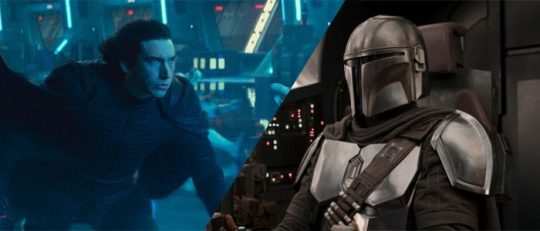
Another year of movies, another year a Star Wars film sadly did not make the cut for my list. With 2019′s The Rise of Skywalker, it is absolutely clear that the folks at Disney/Lucasfilm had no roadmap for this sequel trilogy whatsoever, which is an utter shame given their abundance of resources and proven ability to produce quality content as seen with the success of The Mandalorian.
In a rare occurrence, I saw most of the films nominated in the major categories for the Academy Awards. In fact, the Academy nominated seven out of my top 10 films for at least one award. I would say that 2019 was a markedly stronger year for film than 2018, so I have allowed myself a couple of extra honorable mention slots. One quick housekeeping note before I unveil my 2019 list: I’m retroactively moving Game Night and A Quiet Place ahead of Bohemian Rhapsody and Green Book on my 2018 list. Now it is time to jump into my favorite films of 2019. (No spoilers!)
Honorable Mention: Joker
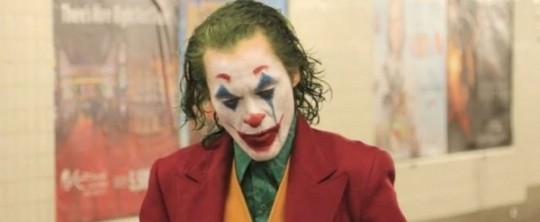
Nominated for a whopping 11 Oscars (equaling The Lord of the Rings: The Return of the King [which swept all 11], The Godfather [Parts 1 and 2], West Side Story, and Saving Private Ryan, among others), Joker should get an award for most divisive film of the year. Directed by Todd Phillips (yes, the same guy who directed The Hangover), Joker is a psychological thriller staring Joaquin Phoenix that provides a possible origin story for Batman’s arch-nemesis. Before becoming the Joker, Phoenix’s character, Arthur Fleck, dreams of becoming a famous stand-up comedian. His gradual descent into insanity, nihilism, and violence mirrors the chaotic anarchy slowly consuming the decaying Gotham City as its citizens revolt against the wealthy and better-off.
Despite the concerns surrounding Joker that it would inspire real-world violence, the film has grossed over one billion dollars, making it the first R-rated film to do so. Phoenix disappears into his role, and Icelandic composer Hildur Guðnadóttir’s haunting score brilliantly conveys the inner pain and turmoil in Arthur’s mind as well as the dying light of Gotham. (Guðnadóttir made history as the first solo woman to win a Golden Globe for best original film score.) In an interview with Forbes, Guðnadóttir explained the concept of her turbulent score. “In the beginning, it’s almost just like a solo cello, but in reality, there’s a whole symphony orchestra behind the cello. It’s almost like this hidden force that he doesn’t know about and as he starts to kind of discover what he’s gone through and what’s actually happened to him, the forces become louder and more aggressive. The orchestra takes over and almost eats the cello alive.”
Although Joker is a powerful film and and makes strong statements about mental illness and poverty, its gruesome, unhinged violence can be hard to handle. Everything is shown in graphic, bloody detail, making the thought of a repeat viewing undesirable. I also could have done without a couple of choices that were made involving the Waynes, especially one scene that we have seen over and over again.
Honorable Mention: Ford v Ferrari
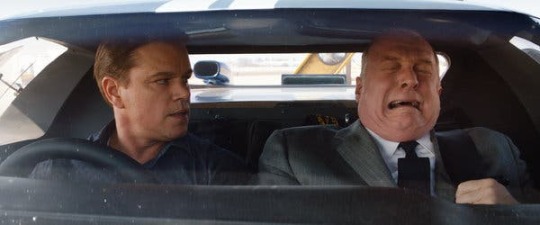
As someone who really does not care all that much about cars and their inner workings, this film did the one thing it needed to do for me: It made me come out exclaiming, “Yeah, cars!”
In all seriousness, James Mangold’s sharp direction smartly focuses not on the sport of racing but rather on its big personalities. Those personalities gripped me so much that I immediately started researching their lives after the film ended. The plot follows Carroll Shelby and Ken Miles as they are dispatched by Henry Ford II to dethrone the dominant Ferrari racing team with an American-made car. Along the way, they have to deal with mechanical setbacks and corporate interference to achieve their goal.
This film’s cast is outstanding. Matt Damon and Christian Bale’s deep but sometimes heated friendship as Shelby and Miles is the heart of the film. Tracy Letts as Ford II and Josh Lucas as Leo Beebe, senior executive vice president of Ford, give off the perfect amount of corporate stench to make them unlikable but not unbelievable. 14-year-old Noah Jupe comes off his great performance in 2018′s A Quiet Place to deliver another stellar outing here as Miles’ young son. However, Jon Bernthal felt a bit underused as Lee Iacocca, vice president of Ford, and Cautriona Balfe’s role as Mollie Miles, Ken’s wife, though well-acted, felt like it could have been removed entirely without much consequence to the film overall.
With a moving score and great cinematography, Ford v Ferrari unexpectedly tugged at my heartstrings, and the infectious passion Shelby, Miles, and these other characters have for cars managed to rub off on me, which might be the ultimate testimonial for this film.
Honorable Mention: 1917
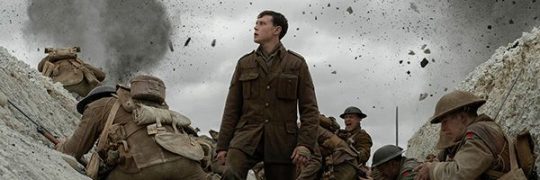
1917 has been hyped as “that World War I movie with one continuous take,” but it is so much more than that. World War I was a stark clash between 20th-century technology and 19th-centry tactics. With soldiers largely trapped in trench warfare, conflicts commonly turned into battles of attrition. That does not exactly translate into exciting cinema, which explains why there are so many more films about World War II. Karl Vick acknowledges this in Time magazine, writing, “motion pictures do require a certain amount of motion, and the major accomplishment of 1917...may be that its makers figured out what the generals could not: a way to advance” (Karl Vick. Time. "Escaping the Trench". January 20, 2020. Page 38-41.)
What more can one say about Roger Deakins at this point? What he and director Sam Mendes created with the cinematography of this film is nothing short of fantastic. With its cinematic achievement of what is made to look like one continuous shot, 1917 presents most of its actors with only a small amount of screen time to make an impact, and they are more than up to the challenge. Mark Strong, Andrew Scott, Benedict Cumberbatch, Colin Firth, Richard Madden, and others all leave a lasting impression with their extremely short encounters with the film’s main characters, Lance Corporal Blake (Dean-Charles Chapman [Tommen!]) and Lance Corporal Schofield (George MacKay). Mendes places the bulk of the weight of the film on Chapman and MacKay’s shoulders, and they luckily carry it with natural ease. Working together with the one continuous take style, Thomas Newman’s riveting score keeps viewers on the edge of their seat and makes them feel like they are part of this life-or-death mission with the lance corporals.
If I had to list a couple of flaws with the film, I would say that one of the characters feels like he has untouchable plot armor. It almost seems like Mendes and company hope that the awe-inspiring cinematography will make viewers forgiving or even ignorant of the amount of times this character should be fatally shot or even injured, but I understand that some artistic license is necessary to convey the story they want to tell. The nature of the cinematography employed here also makes it difficult to get a grasp on distances and positioning because the shot is never really allowed to zoom out or give an aerial view since it is fixed on the lance corporals.
Unfortunately, I experienced this breathtaking film with one of my worst theater audiences of 2019. Much of the film was drowned out by the ladies sitting next to me who felt the need to constantly narrate everything that was happening on screen. “He’s going down into the trenches.” “Look! He’s jumping into the water.” Etc., etc. This is not your living room, people! If people want to talk over a film like this and provide running commentary and narration, they should wait for its home release. Your fellow audience members are not blind, and we would greatly appreciate it if you remained quiet.
#10: Spider-Man: Far From Home
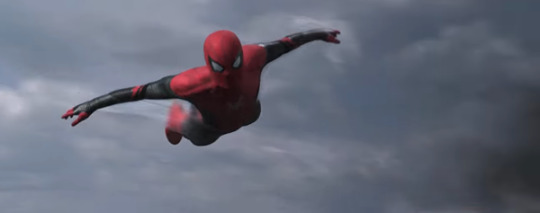
After Avengers: Endgame released earlier in the year, the spotlight promptly shifted to Jon Watts’ Spider-Man: Far From Home, and he did a tremendous job with this film. Serving as both the epilogue to Endgame and the sequel to Spider-Man: Homecoming, Far From Home effectively closes out phase three and sets the stage for the next era of the Marvel Cinematic Universe. Far From Home is the first Spider-Man film to pass the billion-dollar mark, and it is not hard to see how it managed to pull that off. The returning cast led by Tom Holland as Peter Parker/ Spider-Man retains its great chemistry, and Jake Gyllenhaal is the perfect choice to play Quentin Beck/ Mysterio, complete with a great theme from returning composer Michael Giacchino. Fans of Spider-Man have been waiting forever to see this character on the big screen, and I am happy to report the film does him justice. Watts especially knocks his character out of the park with a certain sequence about halfway through the film that I was beyond thrilled to see.
The film is set immediately after the events of Endgame and finds Peter and his high school class taking an international field trip to Europe. The writers do an amazing job explaining the ramifications of Endgame, and the way they weave plot details and character motivations together all the way back from phase one of the MCU is mind-blowing. Watts realizes that there needs to be some levity after Endgame, so this film is full of laugh-out-loud humor and charmingly awkward teen road-trip set-pieces. Oh, and did I mention it has one of the best mid-credits scenes in the entire MCU that dramatically alters the characters’ futures going forward?
#9: Toy Story 4
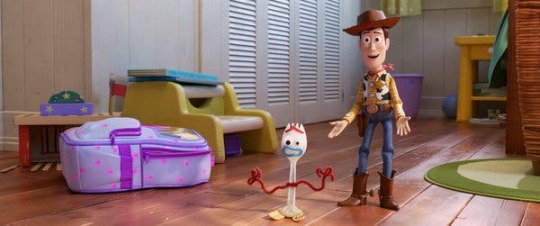
I have a deep personal connection to the Toy Story franchise. I grew up watching Toy Story and Toy Story 2 on repeat, and Toy Story 3 came out during my senior year of high school. Those who have seen that film know why it especially resonated with me at that age. In my opinion, Toy Story 3 ended the trilogy perfectly; there was no way another film could top its emotional ending. When I heard that Pixar was coming out with Toy Story 4, I was not going to pass up another opportunity to hang out with Woody, Buzz, and the gang, of course, (neither was anyone else, seeing as this is the highest grossing film of the franchise) but I set my expectations to a low, manageable level.
Although I was disappointed that Buzz and the rest of Andy’s old toys were not as heavily involved in the plot and did not have all that much time to interact with Woody, I was impressed overall with the new characters and was happy to see Bo Peep return. In this film, Bo breaks through her porcelain design and exhibits a character with total agency over her choices. Everything about her redesign and the way she carries herself is awesome. Keanu Reeves’ Canadian daredevil Duke Caboom steals every scene he is in, and Christina Hendricks’ Gabby Gabby gave me terrifying flashbacks to Talky Tina from the “Living Doll” episode of The Twilight Zone.
As audiences have come to expect from Pixar, the film delivers stunning animation and a signature big emotional gut punch, which it earns it by building up genuinely heartwarming moments throughout its run time that address themes such as the difficulty of change, the beauty of imperfection, the mystery of creation and the meaning of life, and the importance of serving others. As Matt Zoller Seitz writes for RogerEbert.com, “This franchise has demonstrated an impressive ability to beat the odds and reinvent itself, over a span of time long enough for two generations to grow up in. It's a toy store of ideas, with new wonders in every aisle.”
#8: Doctor Sleep
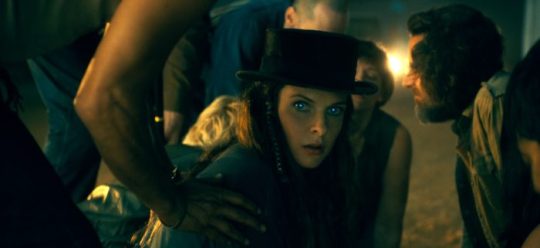
Writer-director Mike Flanagan took on the unenviable task of pleasing two different parties when Warner Bros. hired him in January 2018: fans of Stanley Kubrick’s The Shining from 1980 and Stephen King and fans of his books The Shining and Doctor Sleep. Somehow, he managed to pull it off.
After visiting the Timberline Lodge in Oregon, the location used in Kubrick’s film for the exterior of the Overlook Hotel, this past summer, I decided it was finally time to watch The Shining. I can attest it is just as much a masterpiece as many people say it is. My favorite part: it is a horror movie that does not rely on jump scares. When I heard the Flanagan wanted to chop away at the horror genre’s reliance on jump scares, I was even more excited to see Doctor Sleep. Flanagan said, “When we were developing the project and when we were talking about the metered expectations audiences have about, in particular, jump scares and startles and the pacing of those, which we’re utterly uninterested in this film, I would say, ‘What’s your favorite jump scare in The Shining?’ There isn’t one. The same is true here. We used a lot of the lessons that Kubrick taught us about how to do a psychological thriller, a supernatural thriller, in a way that is more about suffocating atmosphere and tension than it ever is about the kind of traditional scares as we understand them today.”
It is well known that King really disliked Kubrick’s adaptation of his book. He disliked it so much, in fact, that he wrote and executive-produced a new version with the 1997 television miniseries. In his approach to Doctor Sleep, Flanagan first read King’s book, which was published in 2013, and then consulted closely with the author to reconcile the differences between the book and film version of The Shining. After reading Flanagan’s script, King felt like his least favorite parts of Kubrik’s film had been “redeemed.”
Set several decades after The Shining, Doctor Sleep reunites audiences with Danny Torrance, played by everyone’s favorite Jedi, Ewan McGregor. Danny continues to struggle with the childhood trauma he endured at the Overlook Hotel during the events of The Shining, turning to alcohol to numb the pain and his psychic abilities. Meanwhile, the True Knot, a cult of psychic vampires led by Rose the Hat (Rebecca Ferguson), is on the hunt for children with psychic abilities like Danny’s, and they are hot on the trail of young Abra Stone, played by Kyliegh Curran in her feature film debut.
With the benefit of having just seen The Shining a couple of months before this film, I was able to appreciate Flanagan’s careful attention to detail. He is clearly a fan of both King and Kubrick, but he does not let his admiration for them impede his own creative vision. He expertly balances original content with just the right amount of fan service and callbacks to The Shining. Even without jump scares, the film has plenty of horrifying moments, especially one involving young actor Jacob Tremblay that echoed in my mind long after the film had ended. Ewan McGregor is fabulous, as always, convincingly portraying Dan’s fight with his inner demons, and Rebecca Ferguson looks like she is having a devilishly good time as Rose the Hat. Above all, I was surprised to learn that this was Kyliegh Curran’s film debut. She is so comfortable on camera and has painted a bright future for herself out of the darkness of this film.
Doctor Sleep gave me all sorts of chills down my spine, induced by the eerie atmosphere of certain scenes as well as extremely well-timed tie-ins to its predecessor, that left me hungry for even more Stephen King stories.
#7: Once Upon a Time in Hollywood
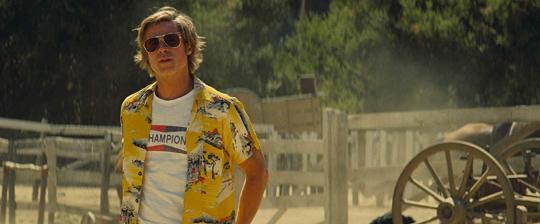
Set in 1969 Los Angeles, Quentin Tarantino’s ninth film stays true to its name and delivers an alternate version of events that unfolded in Hollywood that year. In addition to Sharon Tate, Roman Polanski, and the Manson Family, the film tells the story of fictional characters Rick Dalton and Cliff Booth. Dalton is a veteran Hollywood actor most famous for starring in a Western television series called Bounty Law who believes he is approaching the end of his career. Booth, a war veteran with a shady past, is Dalton’s best friend and longtime stunt double. Together, they attempt to navigate the final stretch of Hollywood’s Golden Age.
Leonardo DiCaprio and Brad Pitt work incredibly well together as Dalton and Booth, respectively, with neither star trying to outshine the other. Margot Robbie, on the other hand, does not get a lot of material to work with as Tate. (Do not tell Tarantino that.) Conversely, Julia Butters blew me away as Trudi Fraser, Dalton’s eight-year-old co-star in the pilot of a new American Western series. She more than holds her own acting side by side with DiCaprio.
Although the film moves at a slow pace, leaving me to wonder at times where this story was even going or if I was just watching a day in the life, Tarantino’s usual engaging, snappy dialogue entertains even when there is no real action happening on screen. With this being Tarantino, audiences have to accept his signature peculiarities, like close-up shots of feet, to be treated to another perfectly crafted soundtrack, complete with classic rock and roll, old-time DJ chatter, and period-accurate radio commercials. In the end, the slow pacing of Tarantino’s script actually helps enhance the heart-stopping standoff at the halfway point and the absurd payoff at the end. Clearly, this film is Tarantino’s passion project. In fact, he said it is “probably my most personal. I think of it like my memory piece... This is me. This is the year that formed me. I was six years old then. This is my world. And this is my love letter to L.A.” No wonder he publicly referred to it as Magnum Opus while he was writing it.
#6: El Camino: A Breaking Bad Movie
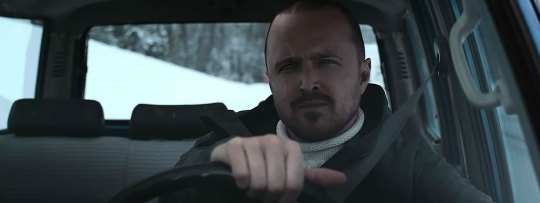
Written and directed by the creator himself, Vince Gilligan, El Camino serves as the epilogue to Breaking Bad, giving fans closure on certain questions and characters. Many favorites from the series return in some form or fashion (shout-out to Jesse Plemons for absolutely crushing his role here), but the focus always remains on Jesse Pinkman. Whereas Breaking Bad was Walter White’s story, El Camino puts Jesse center stage, and Aaron Paul gives one of the best performances of his career, fully tapping into his character’s desperate, damaged psyche.
Breaking Bad and Better Call Saul are two of my favorite television shows, and I think Gilligan is one of the best show runners in the business. He manages to incorporate the tone and atmosphere from the world of those two shows into this film seamlessly, and he rewards longtime fans with a nice amount of Easter eggs. Cinematographer Marshall Adams deserves so much praise for the jaw-dropping shots that grace the screen, especially the ones that show off the New Mexico landscape. He has an astonishing ability to make every frame look like a detailed painting. Editor Skip Macdonald should also be recognized for his work, particularly for the way his editing of Jesse searching for something in an apartment reinforces Gilligan’s non-linear revelatory style of storytelling.
El Camino does not waste any time with exposition, so someone who has not seen Breaking Bad cannot jump right into this film and understand what is going on. Then again, what rock have you been hiding under if you have not seen Breaking Bad at this point? What are you waiting for? Let this be your motivation to finally watch it, and then once you have made it through the series and El Camino, keep the good times rolling and watch Better Call Saul, which is just as good, if not maybe even a little better than, Breaking Bad.
#5: Jojo Rabbit
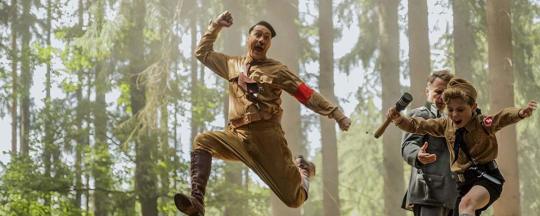
Only the whimsical genius of Taika Waititi could have concocted this irreverent, dark satire set against the backdrop of World War II Nazi Germany. Based on Christine Leunens’ book Caging Skies, Jojo Rabbit stars Roman Griffin Davis as the titular Johannes “Jojo” Betzler, a jingoistic 10-year-old German boy enrolled in the Hitler Youth. Jojo lives with his mother, Rosie, played by Scarlett Johansson. As far as Jojo knows, his father is fighting on the Italian Front, so he often turns to his imaginary friend, a wacky version of Adolf Hitler (Waititi), for advice and support as Germany becomes more desperate as the war starts to reach its conclusion.
Jojo Rabbit’s black comedy places viewers in plenty of predicaments in which they want to laugh, are not sure its entirely appropriate, but still end up doing so anyway. The film balances this out by keeping a good amount of heartrendingly emotional and genuinely sweet moments tucked up its sleeve. Waititi and Romanian cinematographer Mihai Mălaimare, Jr.’s visual storytelling is on a whole different level, carefully using ordinary imagery as subconscious foreshadowing, leading to one of the biggest breath-stealing shocks of the entire year that stopped my heart and rocked me to my core. Michael Giacchino seems to have been criminally overlooked by the Academy for his simultaneously jaunty and intimate score that adds yet another impressive layer to the film’s wide range of emotional beats. Living in a world fueled by hate, Davis, Johansson, and Thomasin McKenzie’s characters show how compassion and the willingness to try to come to a common understanding can change, and in some cases save, lives.
#4: Marriage Story
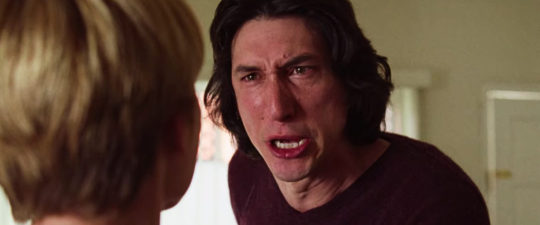
Writer-director Noah Baumbach paints what may be the most brutally honest picture of divorce I have ever seen on screen in Marriage Story. Before Marriage Story, I had never seen one of Baumbach’s films, but I get the sense from this film that he takes a very grounded approach to storytelling.
Marriage Story stars Adam Driver and Scarlet Johansson as Charlie and Nicole Barber. Charlie is an acclaimed theater director, and Nicole is his muse. Despite her acting skills, Charlie always receives all the praise, leaving Nicole to congratulate him from the back seat and contemplate what kind of professional movie and television acting career she possibly gave up to be with him. She also misses living in Los Angeles and being close to her family. At the center of this tenuous relationship is the couple’s young son, Henry. As things go from bad to worse in their relationship, Charlie and Nicole start down the path to divorce, initially wanting to approach everything amicably without involving lawyers, but quickly walking back on that as they begin to doubt each other’s motives and end goals, especially in regards to Henry.
Driver and Johansson both put on a masterclass of acting here, but I would have to give Driver my nod in choosing the stronger performance of the two. He is a tour de force in this film, unyielding to the unflinching camera. Alan Alda and Laura Dern keep pace with Driver and Johannson beat for beat as Bert Spitz and Nora Fanshaw, Charlie and Nicole’s lawyers. Baumbach smartly chooses not to wallow in the melodrama of the messy divorce, showing that small, flickering sparks of love still exist between Charlie and Nicole, maybe not enough to reignite the flame that brought them together in the first place, but enough to convince you that they still have a hope for some kind of happiness.
#3: Knives Out
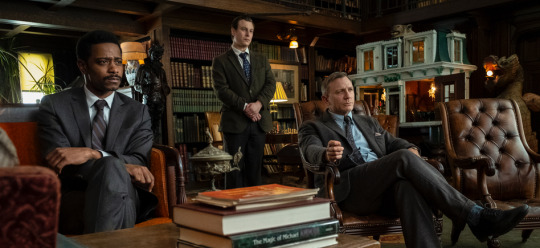
After the Internet firestorm that was Star Wars: The Last Jedi, Rian Johnson did the best thing he could have possibly done—he went far, far away from any established franchises, rounded up an all-star ensemble cast, and wrote and directed his own original murder mystery film. Through some ingenious plotting, Johnson revitalizes the entire genre and turns the classic whodunit on its head, all the while delivering some timely social commentary. Complete with Daniel Craig delivering a monologue about donut holes in a southern gentleman accent, Knives Out is an absolute delight.
The events of the film center around the Thrombey family, with the main mystery beginning after patriarch and rich crime writer Harlan Thrombey (Christopher Plummer) is found dead in an apparent suicide the morning after his big 85th birthday party with his family at his mansion. An anonymous source informs private detective Benoit Blanc (Craig) of Harlan’s death and hires him to investigate.
A huge fan of classical mystery thrillers and comedies, Johnson’s love of the genre is tangible, but he never allows the narrative to become overly meta, referential, or even reverential, for that matter. I have already mentioned Craig and how much fun he looks like he is having in his role as Blanc, but Ana de Armas breaks out as Marta Cabrera, Harlan’s caretaker, and is the heart of the film. The rest of this high caliber ensemble cast has its moments, and I only felt like a couple of the characters were completely disposable, such as Jaeden Martell’s Jacob Thrombey, for example.
Johnson keeps his audience on its toes for the entire film. Just when the solution seems obvious, he throws another twist at them to throw them off the scent. It is a true shame that Knives Out received only one nomination from the Academy, but Johnson more than deserves that nomination for best original screenplay.
#2: Avengers: Endgame
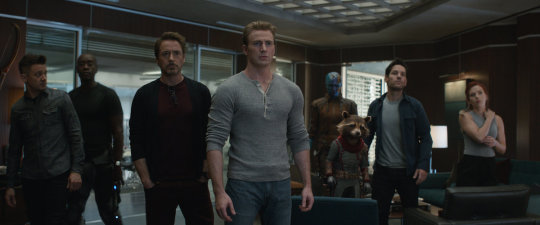
It has all led up to this, the culmination of phases one through three of the Marvel Cinematic Universe. Admittedly, I was not the biggest fan of Avengers: Infinity War; I did not care for its overall slow pacing. Avengers: Endgame, however, is everything I wanted in this grand finale of the Infinity Saga. Whereas Infinity War felt overcrowded, Endgame brings it all back home to the original Avengers team for the majority of its surprisingly swift 182-minute run time, allowing them to essentially take a victory lap before the next phase of this cinematic universe begins. In the interest of not giving anything away, I will keep this brief, and trust me when I say that I could go on and on talking about how much I enjoyed this film. I will just end by saying that directors Anthony and Joe Russo and producer Kevin Feige certainly reward the dedication of fans who have watched all 21 films leading up to Endgame, and Robert Downey, Jr. submits one of his best performances as Tony Stark/Iron Man. #ILoveYou3000
#1: Parasite
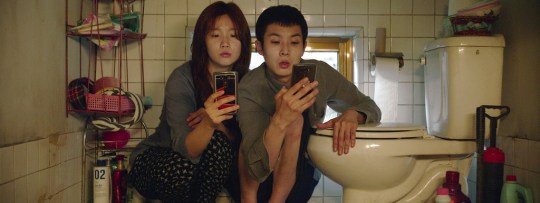
Far and away my favorite film of 2019 was Bong Joon-ho’s Parasite, a South Korean dark comedy home-invasion thriller about a poor family plotting to improve their circumstances by tricking an extremely wealthy family into hiring them by posing as unrelated, highly skilled individuals.
I came into this film ignorant of its premise, and I was completely floored. This is Bong Joon-ho in total control of his craft. Parasite has a mesmeric rhythm to it that is aesthetically energized, allowing the film’s strikingly bold tonal shifts to work so well. Every act increases the ever-present nail-biting suspense, supplemented by cinematic moments of pure genius like the nearly five-minute long montage towards the end of the first hour. Every single member of the cast knocks it out of the park, and there is enough social commentary to fuel college essays for years. The twists zig when you think they are going to zag; it is a truly wild ride. To put it quite simply, Parasite is a masterpiece.
The following are a list of films I saw from 2019, in no particular order:
· Glass
· How to Train Your Dragon: The Hidden World
· Captain Marvel
· Shazam!
· Avengers: Endgame
· Aladdin
· Booksmart
· Rocketman
· X-Men: Dark Phoenix
· Men in Black: International
· Toy Story 4
· Spider-Man: Far From Home
· Once Upon a Time in Hollywood
· Joker
· Parasite
· Jojo Rabbit
· The Lighthouse
· Doctor Sleep
· Ford v Ferrari
· Frozen II
· Knives Out
· Star Wars: The Rise of Skywalker
· 1917
· The Two Popes
· The Irishman
· Marriage Story
· El Camino
· Uncut Gems
· One Piece: Stampede
I somehow completely forgot I saw The Peanut Butter Falcon and absolutely adored it; I definitely recommend checking out this feel-good film.
My 2018 film list: https://kcaruth.tumblr.com/post/182182411291/movie-mania-top-10-of-2018
My 2017 film list: https://kcaruth.tumblr.com/post/171040800751/movie-mania-top-15-of-2017
My 2016 film list: https://kcaruth.tumblr.com/post/156340406236/movie-mania-top-15-of-2016
0 notes
Text
10 Surprising Facts (No Spoilers) About The Joker Movie Behind The Camera)
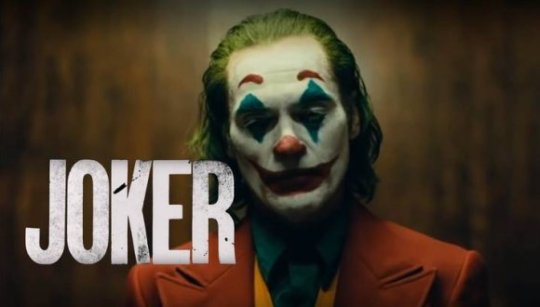
Released recently, Joker has written his name in the history of cinema with gold letters with his screenplay and great performances. Let's look at the camera behind this wonderful film together.
Joker, the last wonder of the cinema world, took its place on the screen last Friday. For those who haven't had the chance to watch the film yet, Joker; a film based on the DC Comics character of the same name, and focuses on the life of Joker, a failed comedian. The most striking feature of the Joker film, where we feel many different emotions at the same time, is that no one laughs during the film. “The Joker laughed through the film, but there was a lot of pain underneath those smiles.” From this point on, we will not mention it in this article because it includes spoilers. Now, without further ado, let's take a closer look at the challenges of the Joker film, what happened behind the camera and how the Joker character appeared. 10. Joaquin Phoenix went on a death diet for his wildcard and lost 23 pounds:
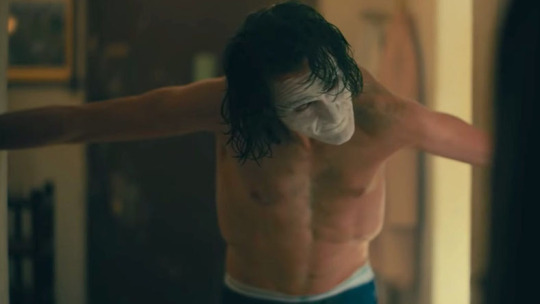
The lead character Joaquin Phoenix, who had to adapt to the skinny and diseased nature of the Joker, entered a strict diet for the film. He also worked with the dietitian, who helped him lose weight in The Master, and ultimately managed to lose 23 pounds to become a Joker. The famous actor, after shooting, gained back some of this weight. Ninth Joaquin Phoenix aimed to extract an independent character from his past wildcards:
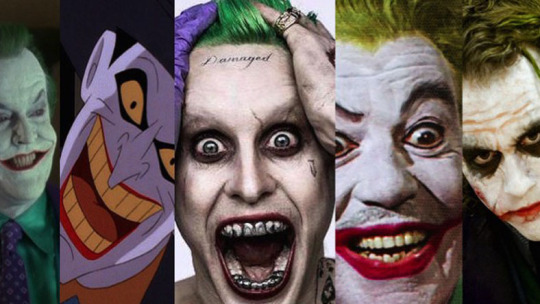
According to Phoenix, his Joker character came out entirely with their creativity, and no role was played by the past Joker characters. ’It was something that made us feel like our creativity, and it was really important to me,’ says Phoenix at the Venice Film Festival. 8. Phoenix watched charades cast and inspired by them to better portray the Joker in the 2019 production:
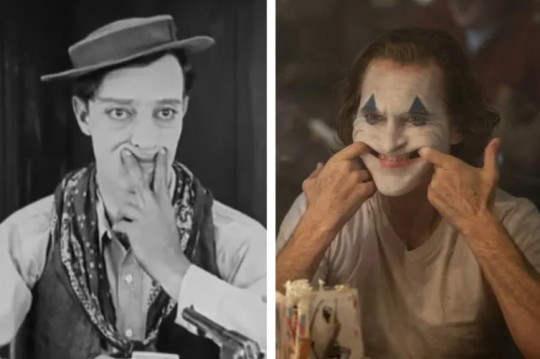
No one is criticized by Joaquin Phoenix's Joker. The reason for this is that he studied well. Joaquin Phoenix, who was a whole with Joker and could not tolerate mistakes, watched the silent cinemas of Buster Keaton and Ray Bolger and studied their movements in order to perfect the Joker's familiar situations. 7. The Joker is based on the Batman: Killing Joke comic book, which tells the story of a failed comedian:
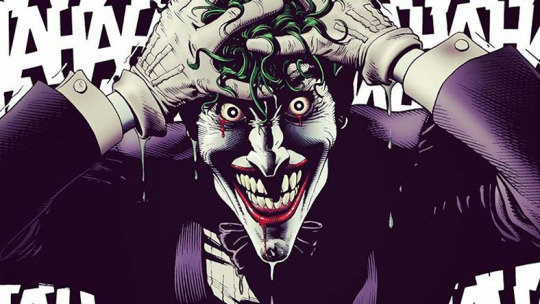
Batman vs Joker's most popular comic strip, the Batman: The Killing Joke comic book, was founded by Alan Moore and was first published in 1988. The illustrations of this comic book were made by Brian Bolland, known for his cover drawings. 6. Another silent cinema that inspired the Joker: The Man Who Laughs
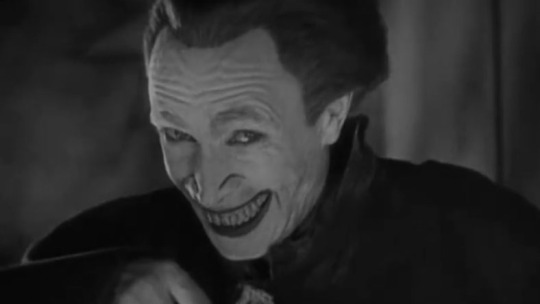
This production, which was translated as “Laughing Man and is the basis of Joker, is known as a 1928 American silent romantic drama. DC has a comic book of the same name, which is about Batman and the Joker's first appearance. 5. The Joker's clown makeup wasn't consciously changed:
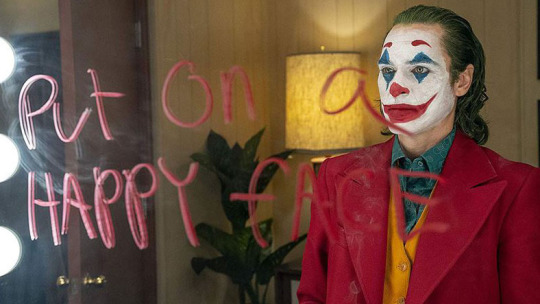
Although the Joker is a bit creepy, it has an ordinary and simple clown make-up. Don't look at what we call simple, according to the makeup artist, the more simple and raw the Joker's makeup is, the more intense and deeper the character will be. 4. The script for the Joker film has changed many times, and hence most scenes have been improvised: https://www.instagram.com/p/B3XWbTdIrqx/?utm_source=ig_embed&utm_campaign=dlfix The Joker script has changed many times in the days before shooting. Therefore, the players had to be a whole with the characters and they had to improvise in their dialogues, but if we look at the result, the players have really succeeded. 3. According to director Todd Phillips, The Joker's smile should have been painful:
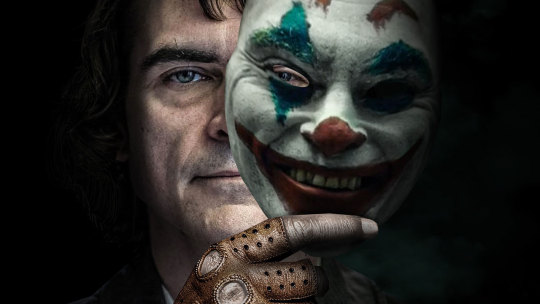
Everyone who watched the Joker came to the question, Why did the Joker make such bitter laughter at things that are not funny? ” The answer is simple. Joker director Todd Phillips told Joaquin Phoenix before filming that he saw the Joker's smile as something painful. As a result, Phoenix worked on many different smiles, then organized a selection of his own free will and presented them to the director. Throughout the filming of the Joker movie, Rober DeNiro and Phoenix barely spoke to each other:
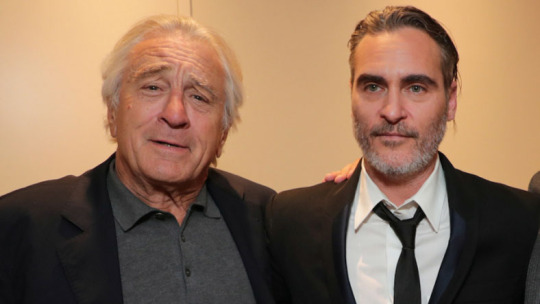
In fact, Robert DeNiro is one of Phoenix's favorite American actors who brings the Joker to life. Nevertheless, the duo had little dialogue during filming. One of the reasons for this is that the duo has a different understanding of business in different styles and structures. 1. There were moments of tension between two master players during the shooting:
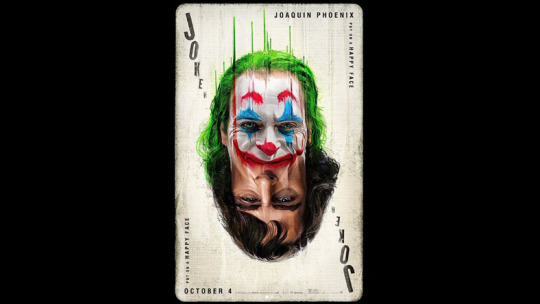
We can say that the Joker is a masterful piece of work, but there are not moments of tension during the Joker's shoot. The main reason for this tension is DeNiro's business approach. According to DeNiro, the actors had to read and memorize before they could read their scenes. According to Phoenix, it was just the opposite, and he didn't want to read at all. Fortunately, they were both adept and eventually reached a compromise. We've compiled the most interesting information about the Joker behind the scenes, but that's not all. Beyond the Joker's camera, there are also pre-production and production stages. So, what was the method of making the Joker? Let's take a look at the explanations of Todd Phillips, who interviewed Vanity Fair and The New York Times to answer this question. Telling the character of Arthur Fleck through images: https://youtu.be/awoQuVq2yYc Let's start with the opening scene of the film. Todd Phillips tells the opening scene of the movie in Vanity Fair's video. In this scene, we witness how powerless and pure Arthur Fleck is. Thus, the curiosity of how the character will turn into a super-villain throughout the film catches us from the beginning of the film. Todd Phillips describes the entire opening scene with every technical detail. The opening scene of the film hides great details to reflect the current character of Arthur Fleck. Since Arthur is mostly a single person, he wanted to emphasize this. So Todd left the character alone where Arthur worked, adding his card-playing friends to the background. Meanwhile, Arthur does his clown make-up and works on how to smile. Arthur's smile is very important in the film. Arthur is smiling all the time, as his mother tells Arthur that he came to the world to bring joy and laughter, but it is also possible to see Arthur having difficulties with laughter throughout the film. Arthur laughs all the time because he's been forced to think that he's been happy since he was little, but people misinterpret these laughs because nobody understands. How do music and character combine?
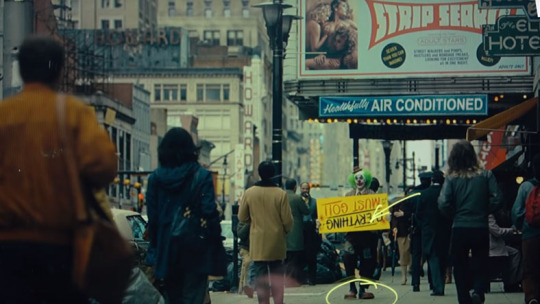
Later in the video we learn interesting information about the music used in the film. Todd reports that the soundtrack was prepared before the film was made. Todd says that he wants to impress everyone on the set with music. Music was played on the set while the scene was shot to reveal Arthur's passion for music. So Joaquin was able to portray Arthur as well as possible. In the meantime, let's remind that Hildur Guðnadóttir, who made the soundtrack of the film, also made music for Reha Erdem's film Jîn. In the sequel, Todd shares details of the world Arthur is in. To describe Gotham's pressure on Arthur, the director says he doesn't leave spaces between buildings, and he pays attention to large buildings everywhere. Perhaps the part that most reflected Arthur's character in the opening scene was the end of the scene. Arthur was battered by a group of four, but after the beating, he held out his hand, still thinking he could fix it. Later, because of the imposition of "You are there to make you laugh," he would reach the key in his pocket again and make water from the flower on his collar. This scene also portrays how lonely and helpless Arthur is. All behind-the-scenes from the Joker movie: https://youtu.be/drXJujyIIR8 Read the full article
0 notes
Photo
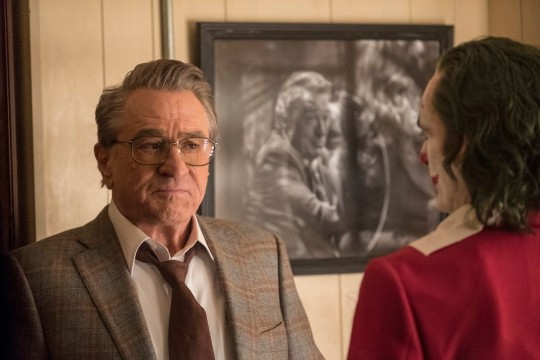
New Post has been published on https://magzoso.com/tech/joker-movie-review-joaquin-phoenix-captivates-in-a-misguided-origin-story/
Joker Movie Review: Joaquin Phoenix Captivates in a Misguided Origin Story

One of the reasons the Joker was such a thrilling phenomenon in Christopher Nolan’s 2008 masterpiece The Dark Knight was that the film opted to make him an enigma. It made him all the more terrifying because you didn’t know why the DC villain did anything, and he deliberately contradicted himself every time he offered a glimpse at his thought process. Ultimately, we are told next to nothing about his background. In other words, The Dark Knight’s Joker had no origin story. The comics have largely avoided fully sketching out his past as well, though the most common elements have included him falling into a vat of chemicals and then being driven insane by the resulting disfiguration. Enter the new take on the character in Joker.
With director Todd Phillips (The Hangover Trilogy) at the helm, who’s working off a script he co-wrote with Scott Silver (The Fighter, 8 Mile), Joker is far from wholly original though. Its basic premise — that of a failed stand-up comedian who unwittingly turns to a life of crime — is borrowed from Alan Moore’s 1988 one-shot graphic novel “Batman: The Killing Joke”. Additionally, the film riffs heavily on the works of Martin Scorsese — who was once attached as producer, but left due to the workload involved with The Irishman — especially the 1976 neo-noir psychological thriller Taxi Driver, and the 1983 satirical black comedy The King of Comedy, both of which starred Robert De Niro. (De Niro is in Joker too, and his role is a reverse homage to the latter.)
It’s why Phillips has also chosen to set Joker is that same period, as it takes place in 1981 in Gotham City, which as every Batman fan knows is essentially New York for all intents and purposes. By its setting, the movie can then trade on New York’s civic, criminal, and social problems from that time, which essentially run parallel to the atmosphere of Taxi Driver. Joker mixes that with the character’s aspirations to have the life of a talk show host and comedian from The King of Comedy. (De Niro played a madman then and he plays the host now.) And just as both Scorsese films did, Joker too follows a lonely individual who’s combating a mental illness and is slowly driven insane. Here, said individual is a failed comic called Arthur Fleck (Joaquin Phoenix).
At the start of the film, Arthur is employed as a clown — an intentional foreshadow — who works as a sign waver. One day, he’s picked on by a bunch of kids who proceed to destroy the sign and beat him up. But Arthur’s boss doesn’t buy his story and issues him a final warning, even though he was the victim in this scenario. Things aren’t any better on the personal side of things. There’s no one in his life except his mother Penny (Frances Conroy), whom he diligently takes care of. Together, they always watch Murray Franklin’s (De Niro) nightly talk show, which Arthur vividly dreams to be a part of. On top of all that, Arthur has a medical condition that causes uncontrollable episodes of laughter, which doesn’t earn him any compassion even though he carries a laminated card that says as much.
This takes place against the backdrop of a Gotham City where the divide between the haves and the have-nots is deepening by the day. The messaging is pervasive throughout Joker, with the city having trouble dealing with everything from “super rats” to funding its social services. It doesn’t help that Gotham’s next mayoral candidate is an uber-rich man in Thomas Wayne (Brett Cullen) — father of a young Bruce, who grows up to be Batman and Joker’s archenemy in the comics — who has some choice words for the city’s poor. Wayne’s demeanour makes him an easy villain in Joker, both on a public and private level, with the film tweaking his past and personality to give Arthur further reason to hate him. (That also helps set up an intriguing twist on one of the most iconic comic book moments.)
In the run-up to its release at film festivals, Phillips used the word “bonkers” to describe Joker. But it’s actually straightforward in pure filmmaking terms. To set up the story of a person who feels neglected by and isolated in society, Joker essentially puts him through the wringer. Arthur starts off in a bad place and things just get progressively worse from there on, as he loses all his support systems: mental, professional, and personal. Joker also literally isolates him on-screen, with the many supporting roles — including De Niro, Conroy, Cullen, his clown pals, and Zazie Beetz as his love interest — amounting to extended cameos for the most part. So when Arthur snaps a little more than midway into it, it’s very easy to identify with him, even though you know what the Joker stands for.

Robert De Niro as Murray Franklin in Joker Photo Credit: Niko Tavernise/Warner Bros.
Joker is most thrilling, hair-raising, and disturbing as Arthur completes his transformation into the title character, with each scene thereafter somehow more terrifying than the one it follows. His actions help the anti-rich sentiment in Gotham boil over, and it’s terrifying to see how the pain and anger of one individual can be co-opted by a system for their benefit. But it’s also here Joker wades into troubled waters. Not only does it state that mental illness can be a source of evil, it also gives a select group fuel for how they see the world. By making Arthur a hero of sorts, Joker can be seen as justifying their thoughts and potential actions. That’s a dangerous notion to peddle — without condemning — in an environment where everyone believes they are “righteous”.
That any of it sticks is because of Phoenix. The 44-year-old — who has wilfully avoided commercial cinema ever since the turn of the century — gives Joker every ounce of what he has to offer, having lost 24kg of weight for the role. His (unintentional) laughs start off with copious amounts of nervousness and sadness, and then slowly morph into something else altogether. By the end, Arthur isn’t laughing as much, but you can tell that he’s smiling to himself. Phoenix is every bit as captivating as Heath Ledger was over a decade ago — it’s why there are calls already for giving him the Oscar — albeit for different reasons. If Ledger was frightening, then Phoenix is spine-chilling. The latter also benefits by getting to work with a character arc courtesy of the transformation.
For those that usually restrict themselves to the superhero genre, Joker will no doubt be a breath of fresh air. And though it’s not part of the DC film universe that includes Wonder Woman and Aquaman, it does leave room for a future with more of Bruce Wayne. Phillips has said he doesn’t see Robert Pattinson’s Batman cross over but that doesn’t mean he can’t create his own world, which depends on how it does commercially. But as an origin story — Arthur is a product of a broken mother, a broken home, and a broken city — it’s unable to meaningfully engage with what it presents. And as a standalone ~superhero~ film, Joker drinks too much from Scorsese’s can while presenting a deeply cynical but ultimately empty viewpoint. It’s provocative but sadly, it’s also irresponsible in the handling of that material.
Joker is out now in cinemas across India.
0 notes
Text
It really worries me that you think a good figurehead for anti-government corruption and anti-rich sentiment is a character best known for killing a Robin, paralyzing Barbara Gordon, and literally holding babies hostage because they’re easy to transport and kill. It worries me even more that you don’t see the way that will further infuse genuine efforts to make the world a better place for lower class people with violence, aggression, and villainy.
The Joker’s issues as viewed by him are personal up until the moment he’s on television. The people who worship him are oblivious to the fact that he doesn’t know or care about their cause, and he doesn’t care to correct them, happy to bask in their attention however he manages to get it. He has learned with positive reinforcement that if he does dramatic and violent things people will pay attention to him, not that he’s the leader of some great movement that will bring down the evil government.
Seriously, who do you think he is? A Bolshevik? The moment he stops getting the reaction he wants from the anti-rich crowd he’ll find some new thing to do, and Gotham will go back to the way it was. That’s like, the whole point. He doesn’t want to fix things, he wants everything to in chaos (”I’m a dog chasing cars” sound familiar?) — and this is like, the second time they’ve used the anti-rich villain propaganda in modern Batman movies. Bane had the same plot of ‘eat the rich!’ with the whole Tale of Two Cities parallel in Dark Knight Rises, except his plan ass to let people enjoy freedom for about a month before blowing the city to smithereens and them along with it. Now there’s Joaquin Phoenix’s Joker, who doesn’t actively trying to convince the masses of Gotham he’s fighting for them so much as take advantage of the fact that they think he’s fighting for them. They’re teaching us all that any attempt at bettering the world is false and done with hidden malicious intent, and the fact that nobody’s catching that with this new movie is a little scary.
On a more general note, maybe we should look into why Batman movies specifically keep rehashing the fact that hating rich people is an evildoer’s character trait. I’m sure it’s just because Bruce is a rich man, but like... this is not the era for those kinds movies, don’t you think?
Like, I don’t mean to sound mean, but art is endlessly expansive, and claiming it’s only one thing when it’s so clearly layered is just... idk, dumb.
The Joker was terrible but like... one man lashes out because of personal issues and the whole city decides there’s some greater purpose behind his actions? That’s basically like, every instance of white male rage ever.
63 notes
·
View notes
Text
How Wonder Woman 1984 Connects to the Larger DCEU
https://ift.tt/eA8V8J
While the first Wonder Woman film didn’t have many connections to the larger DC Extended Universe, it still obviously took place in the same world as Justice League and many of the other DCEU films. That being said, the DCEU is in a very different place in late 2020 than it was in 2017. The state of DCEU continuity is, let us say, messy—and seemingly getting messier. How will Wonder Woman 1984 fit into all of this?
When the DCEU launched in 2013 with Man of Steel, it had an eye toward creating a shared cinematic universe like the one Marvel has constructed with the MCU. More recently, however, the franchise has backed off on that strategy, with DC films like Joker not even trying to exist within the DCEU, casting Joaquin Phoenix in the role previously and currently held by Jared Leto. Furthermore, with the younger Robert Pattinson (age: 33) set to take over the role of Batman/Bruce Wayne from Ben Affleck (age: 47) in Matt Reeves‘ upcoming The Batman, the DCEU will have to make some serious retcons if it has any interest in continuing the DCEU as a shared universe in any substantive manner.
In many ways, Wonder Woman 1984‘s setting lets it off the hook. Cleverly (and probably intentionally), both Wonder Woman films have been predominantly set well before the main events of the other DCEU films—the first in 1918 and the second in, well, 1984. While there was a Wonder Woman frame tale that saw Diana hanging in contemporary Paris (where she receives a present from Bruce), mostly, these films have avoided getting involved with any of the present-day DCEU shenanigans by simply opting out of the 21st century altogether (a relatable instinct, honestly).
So how does Wonder Woman 1984 connect to the larger DCEU? Den of Geek was part of a group of reporters who visited the Wonder Woman 1984 set in London in 2018. While there, we were able to get some insight from both director Patty Jenkins and producer Charles Roven on the subject…
Roven said there will not be tie-ins to the larger DCEU, adding: “One of the things that Patty has [done], and I don’t know what’s going to happen in the future because we don’t even know where this could go, but specifically she wanted to make sure that we had the character in the universe that was standalone, so that we could continue her character without having to weave [in] the other characters.”
For Roven, this choice is not so much about opting out of a shared cinematic universe, which he never explicitly said Wonder Woman 1984 does or does not do, but rather about focusing on the character and world of Diana.
“We wanted to just make sure we could deal with her themes,” Roven adds. “That’s what I was saying earlier. We haven’t finished telling her story. We wanted to concentrate on her. We felt that if we didn’t pick a time before, let’s say, the DC Universe started with Man of Steel because everything evolved from that, when we were doing everything that dealt with the time after that. We felt that we just needed to focus on her like we did on Wonder Woman.”
When discussing the subject with Jenkins, the director downplayed even any connections to the previous Wonder Woman film, saying: “I think there are little things [that connect to a larger story], but those things come secondarily to the story [for this film]. I’m not a huge fan of doing chapter two of a seven-chapter story. That’s just not my jam. I feel like that may happen in the way background, but every movie in my opinion that I want to make should be its own great movie, and I kind of like to think about them that way. So I have my own ideas about what [Diana’s] overarching arc is, of the whole thing, but it’s the story [for this specific film] first.”
While both Jenkins and Roven seem to want to play down connections between Wonder Woman 1984 and any other DCEU film (perhaps in an effort to bring in an audience who hasn’t seen all or even any of the other DCEU films), there are some unavoidable connections. The most glaring one: the miraculous return of Steve Trevor, who died at the end of Wonder Woman and whose loss Diana was still mourning during the events of Justice League.
“Again, you don’t have to worry about anything post this film because everything [that] happens in this film happens between Wonder Woman and this [Wonder Woman 1984], right?” says Roven. “However Steve Trevor finishes in this movie, they’re still from 1984 to … 2017 to deal with whatever happens to Steve Trevor after that, OK? But you just have to see where he ends up at the end of this film, right?” Um, pray for Steve Trevor.
In other words? The creators of this film would very much like you to treat it as a standalone, even though it technically still exists within the world of Justice League, which is to say, colloquially, the DC Extended Universe. By setting the film well before the events of that film, Wonder Woman 1984 is seemingly opting out of addressing the larger DCEU in any explicit way. We will have to wait until Wonder Woman 1984 actually hits theaters, but, for now, maybe don’t get your hopes up about Bruce sending Diana any more presents… if you were even into that sort of thing to begin with.
If that disappoints you, then know that Wonder Woman can only stay in the past for so long. Jenkins has already spoken publicly about her intentions to tell a modern-day story in Wonder Woman 3. Hopefully, the DCEU will have gotten its act together by then.
Wonder Woman 1984 hits theaters on October 2nd. Warner Bros. will be dropping a new trailer for the film this Saturday during the Wonder Woman 1984 panel at 1pm ET at DC Fandome.
The post How Wonder Woman 1984 Connects to the Larger DCEU appeared first on Den of Geek.
from Den of Geek https://ift.tt/2YgcGId
0 notes